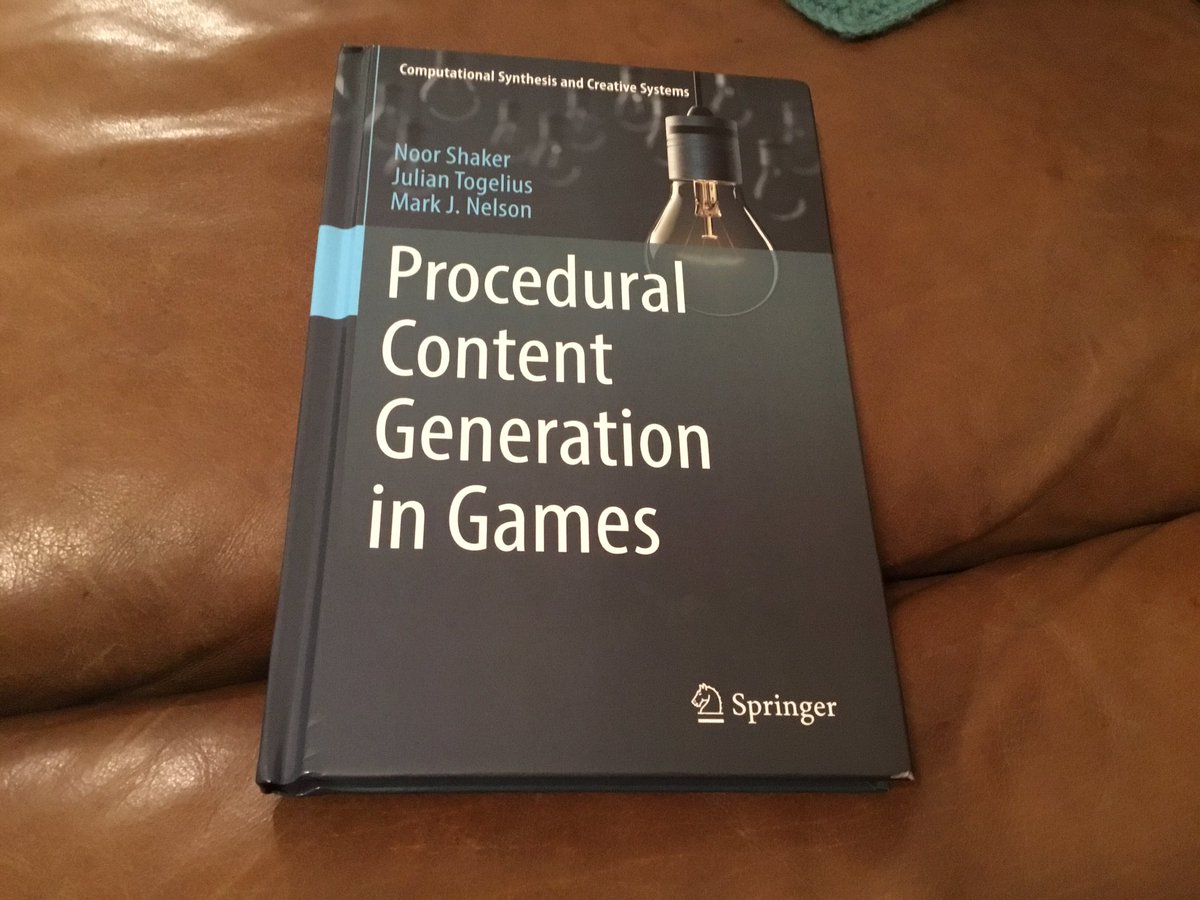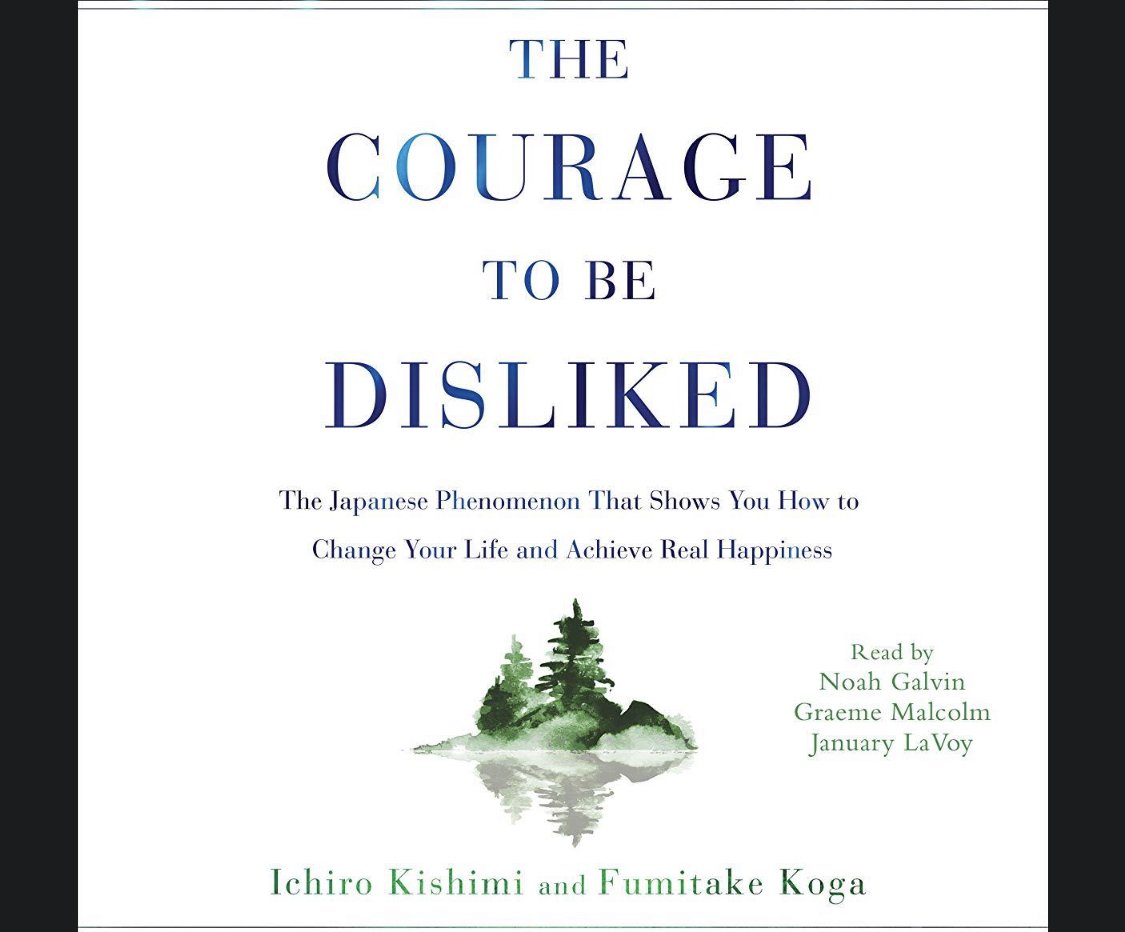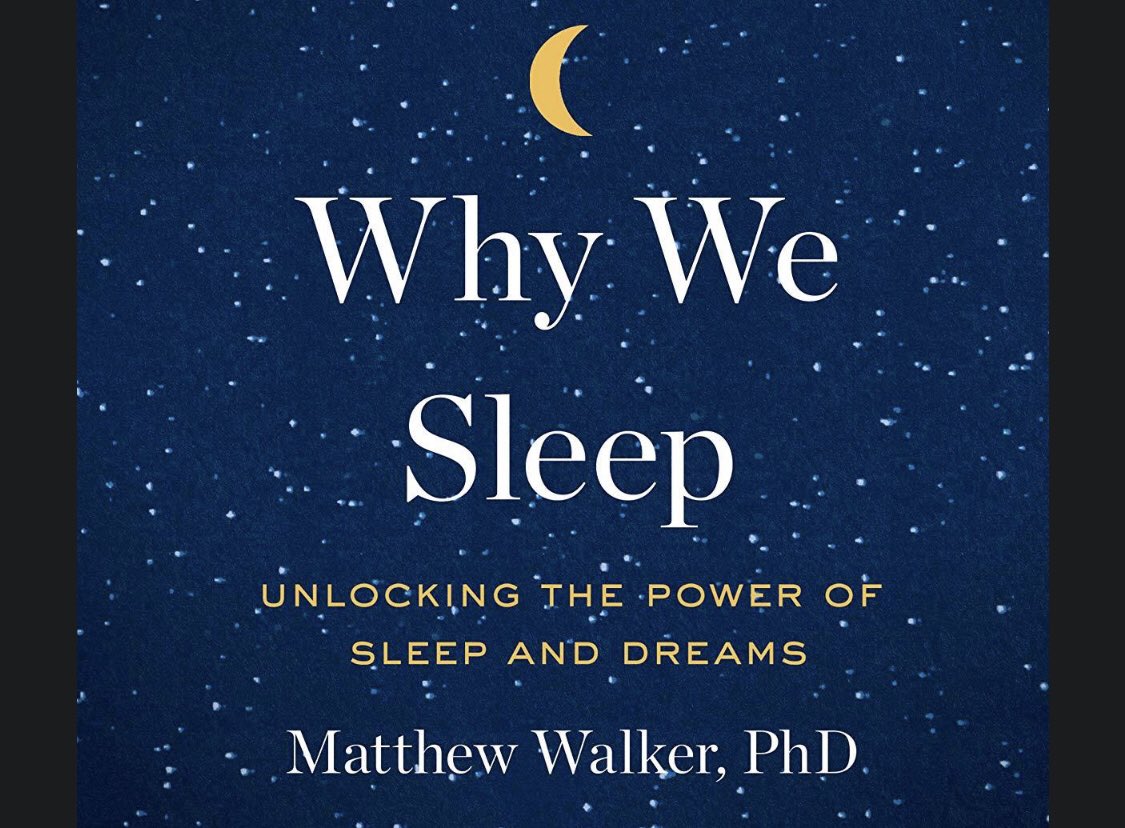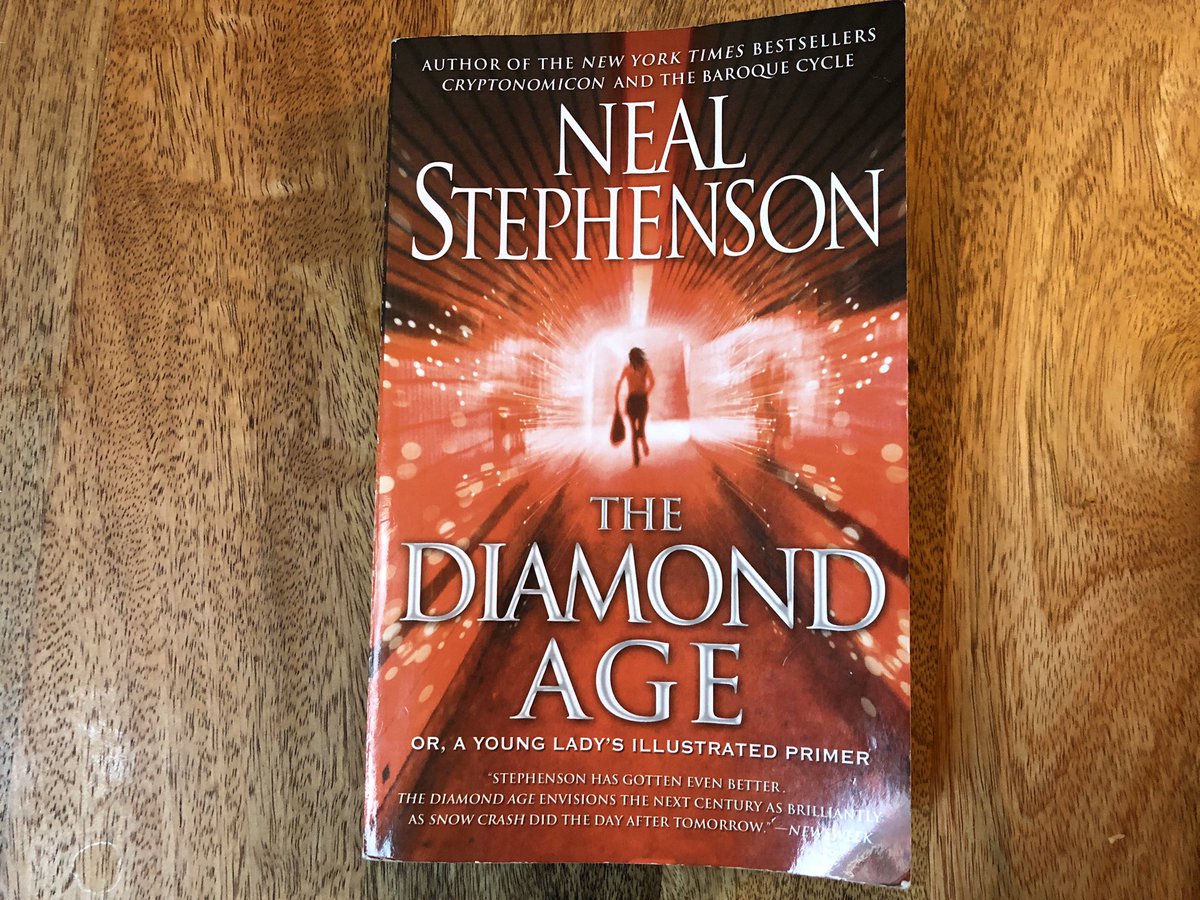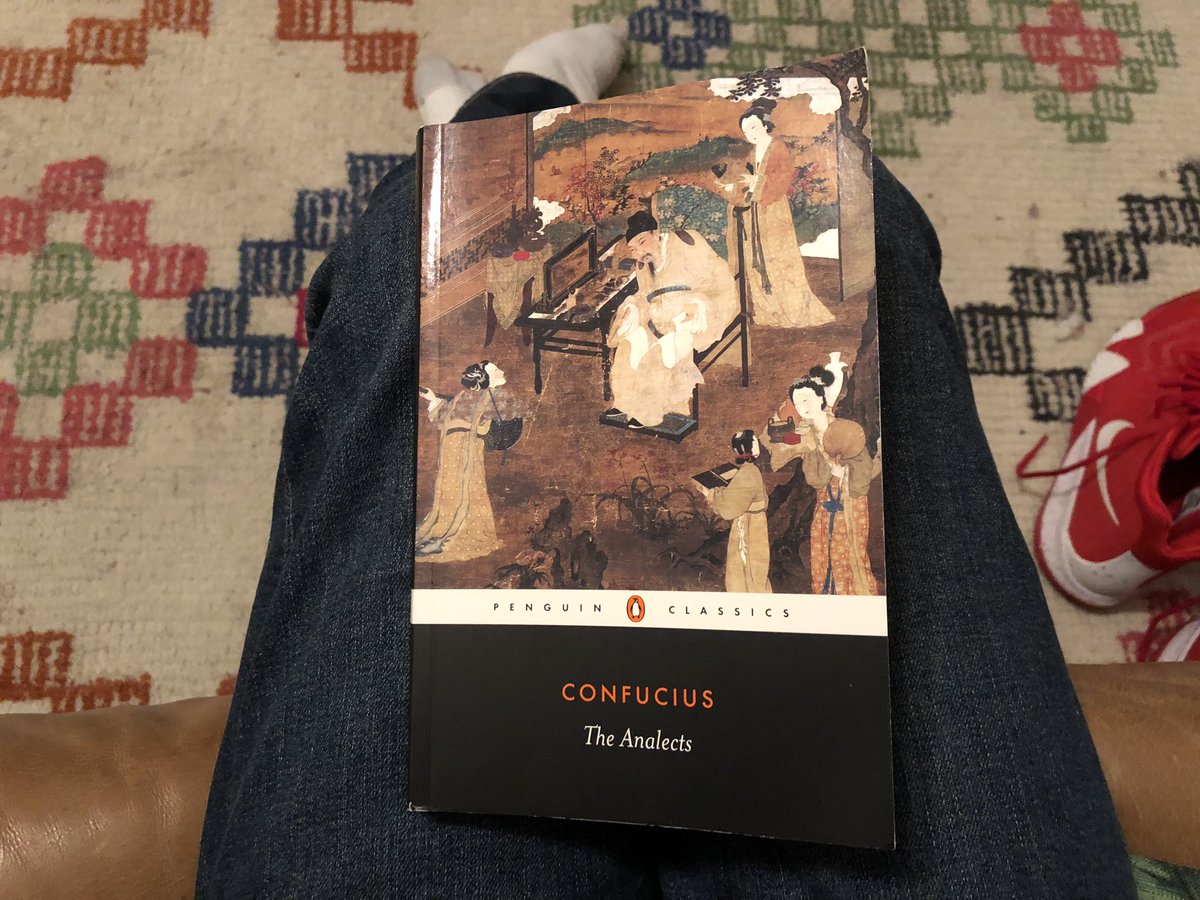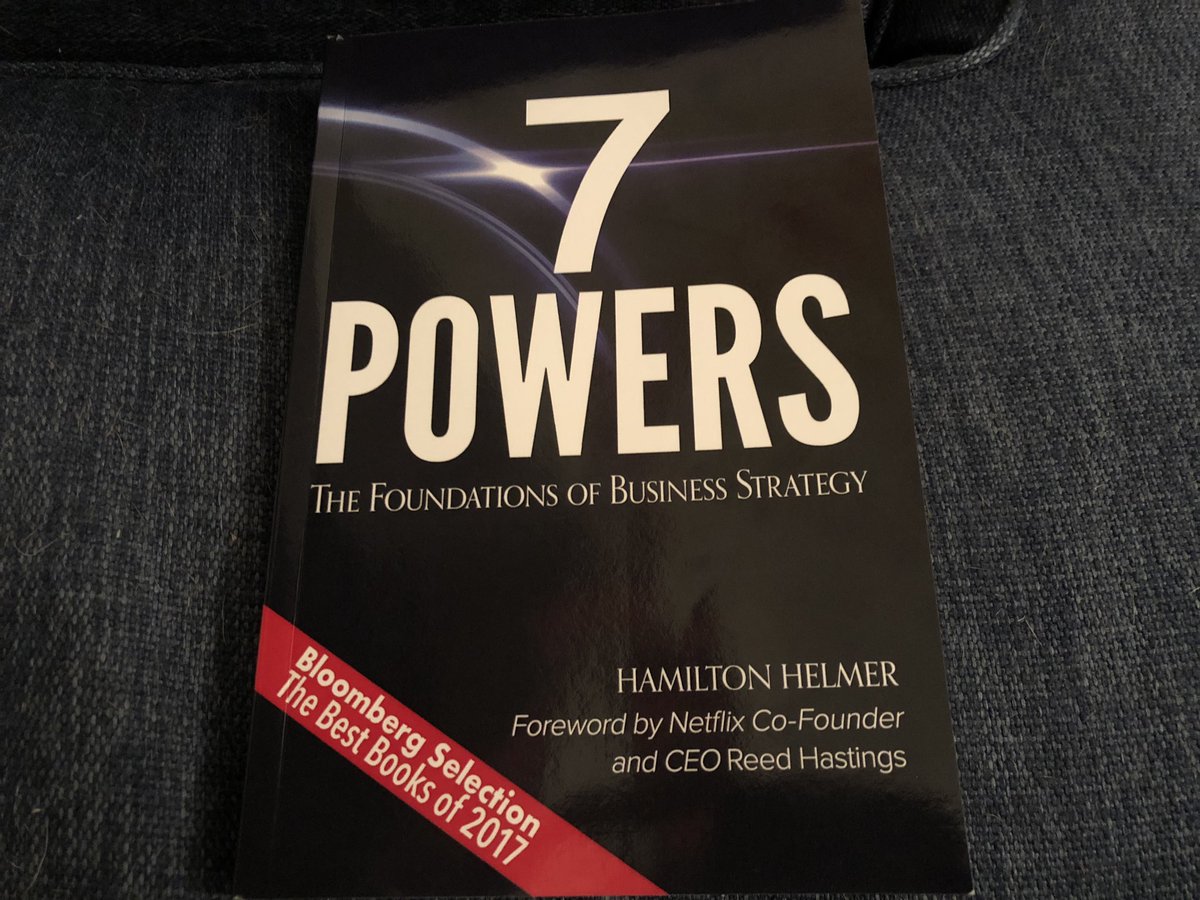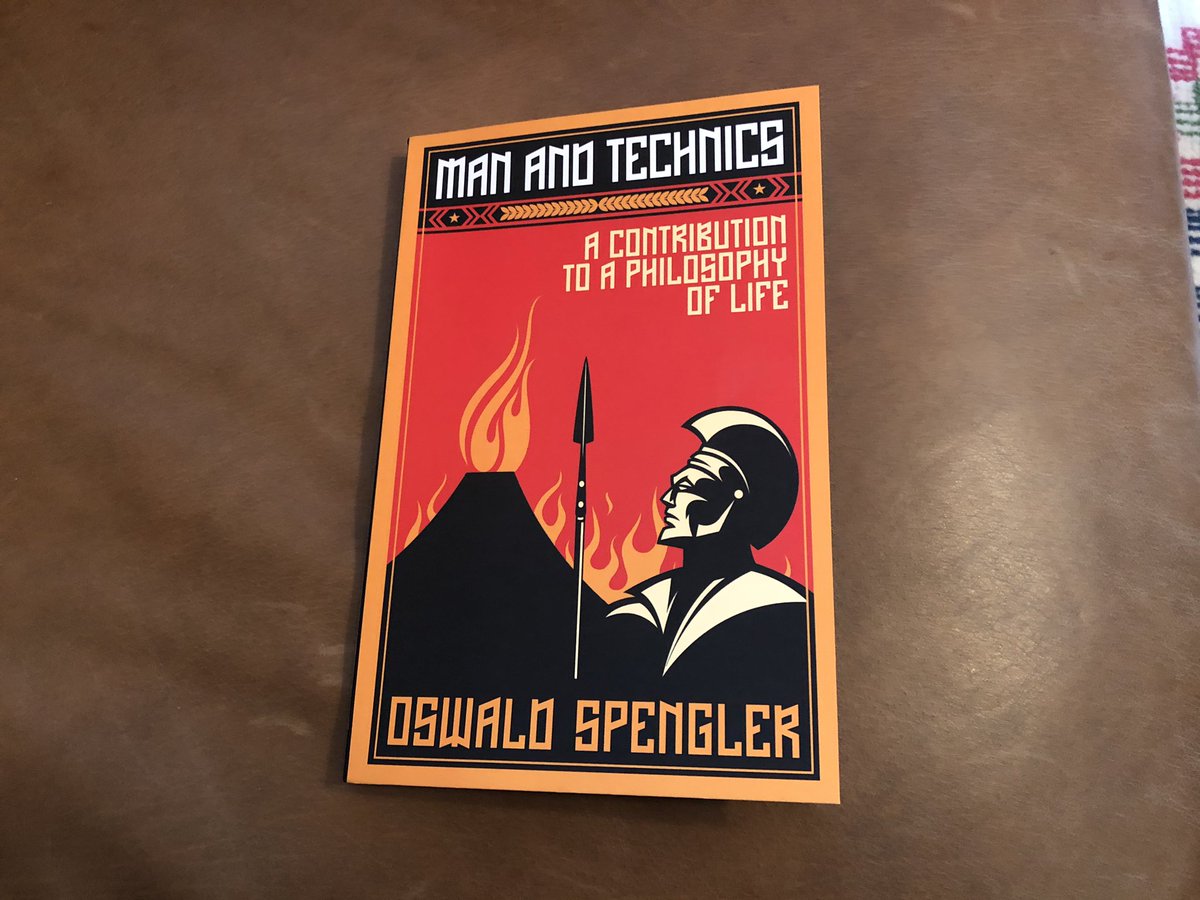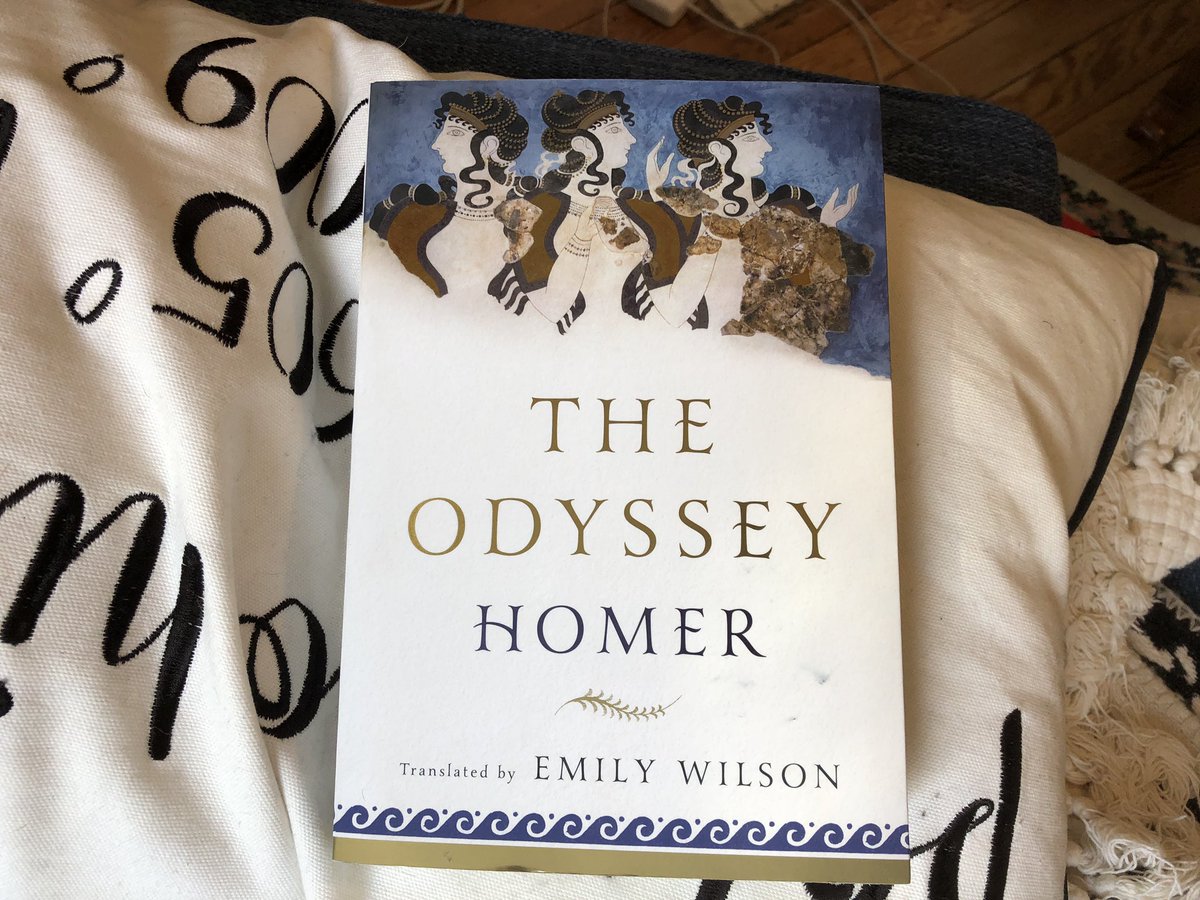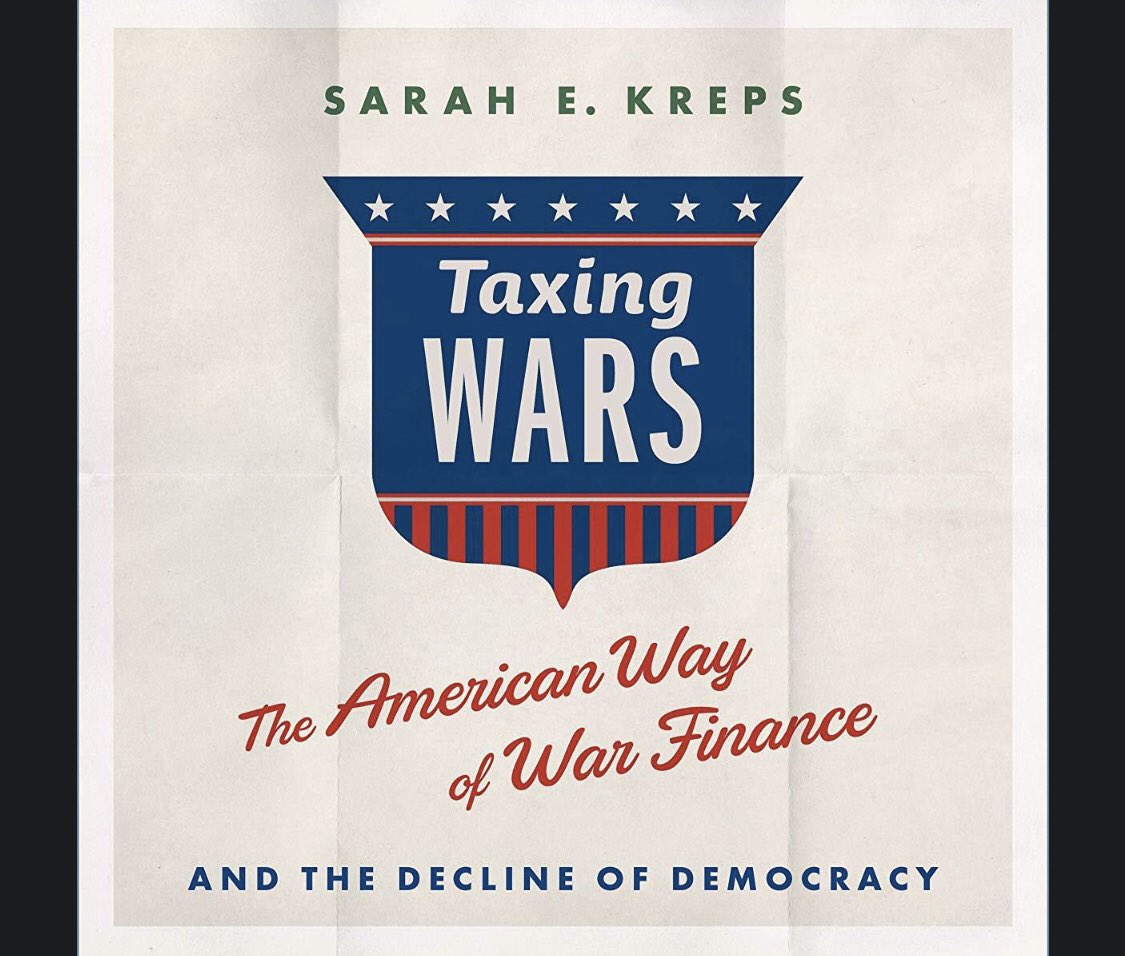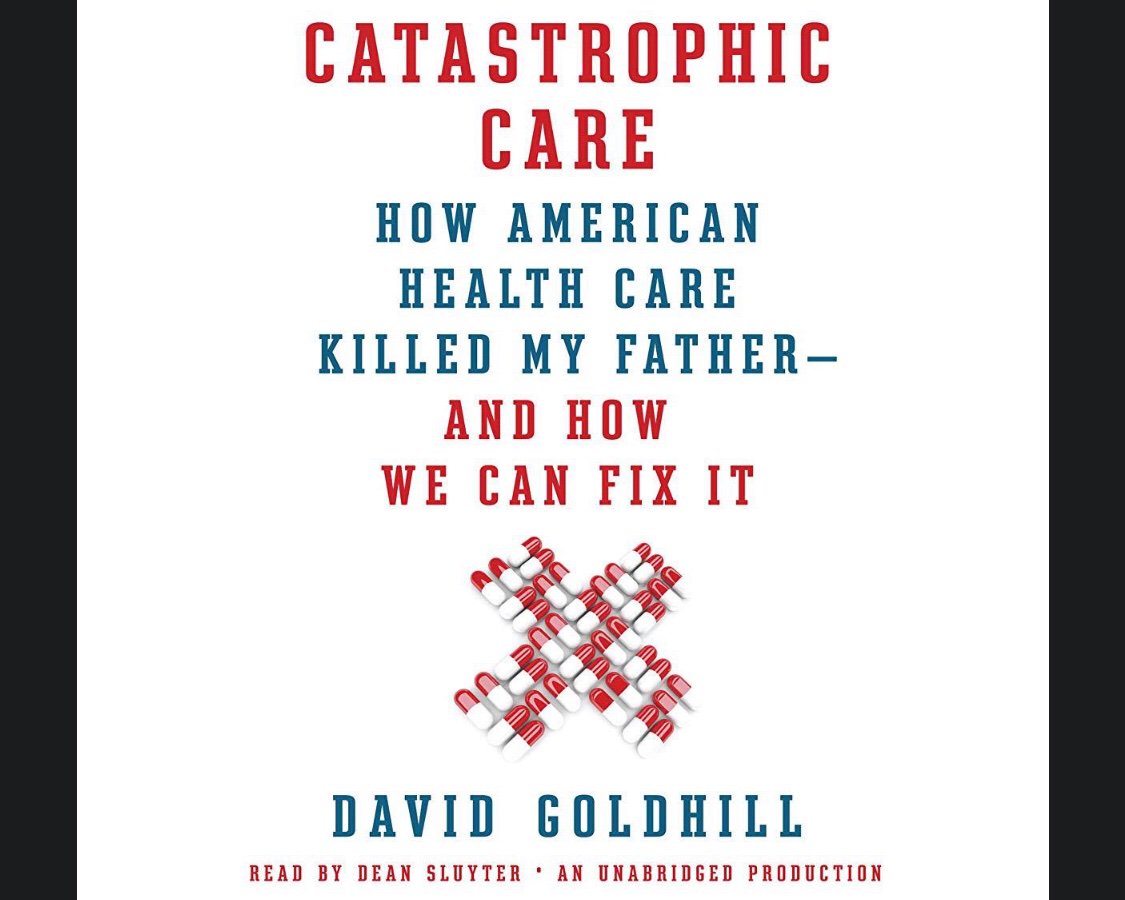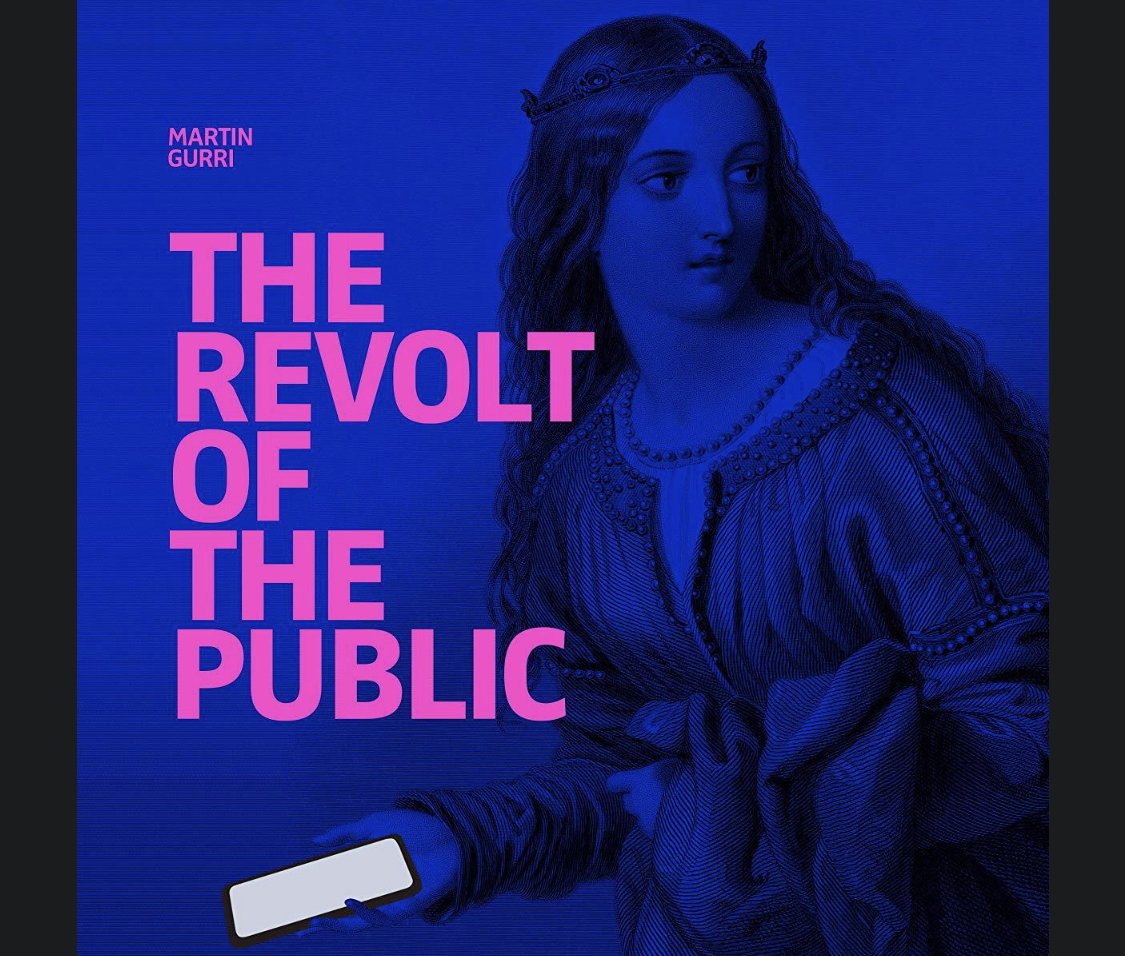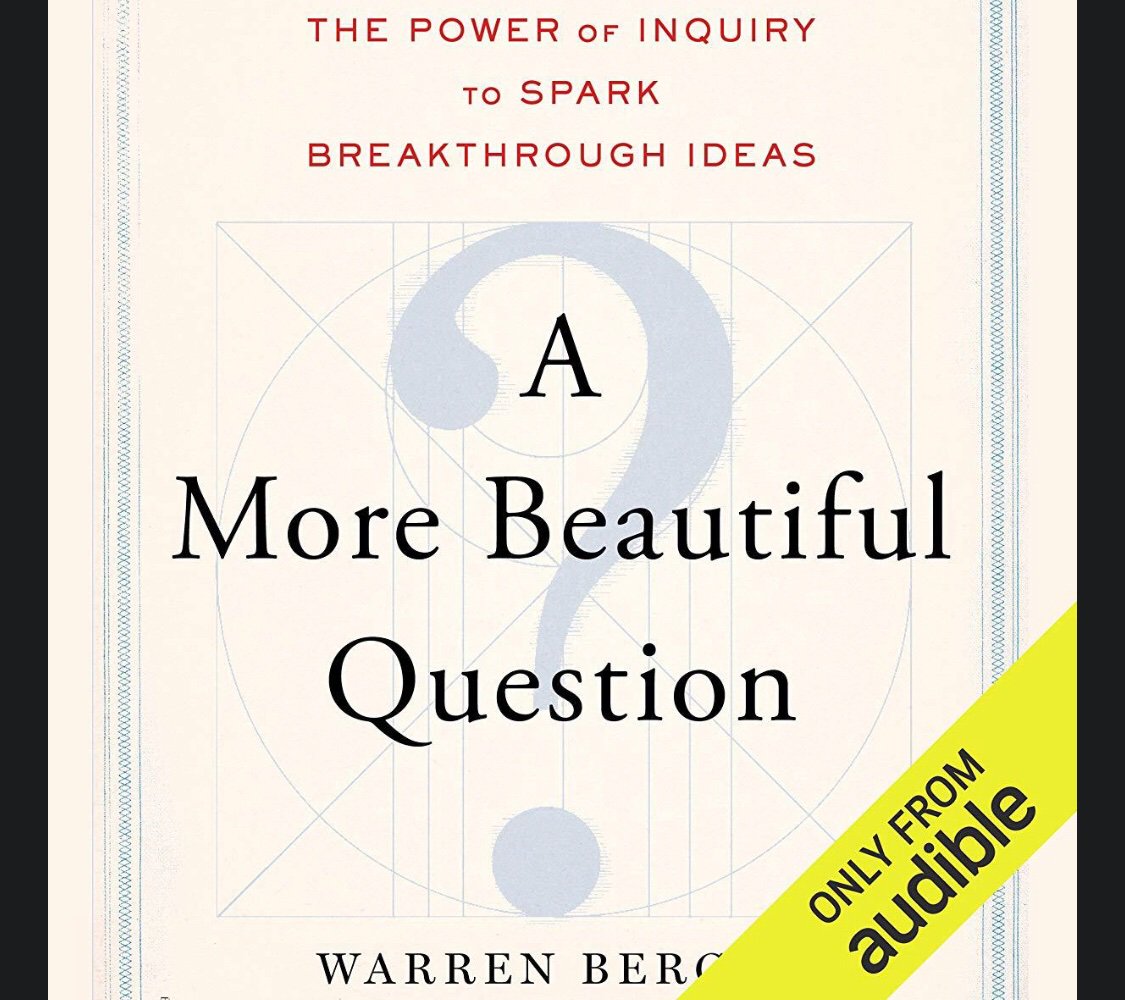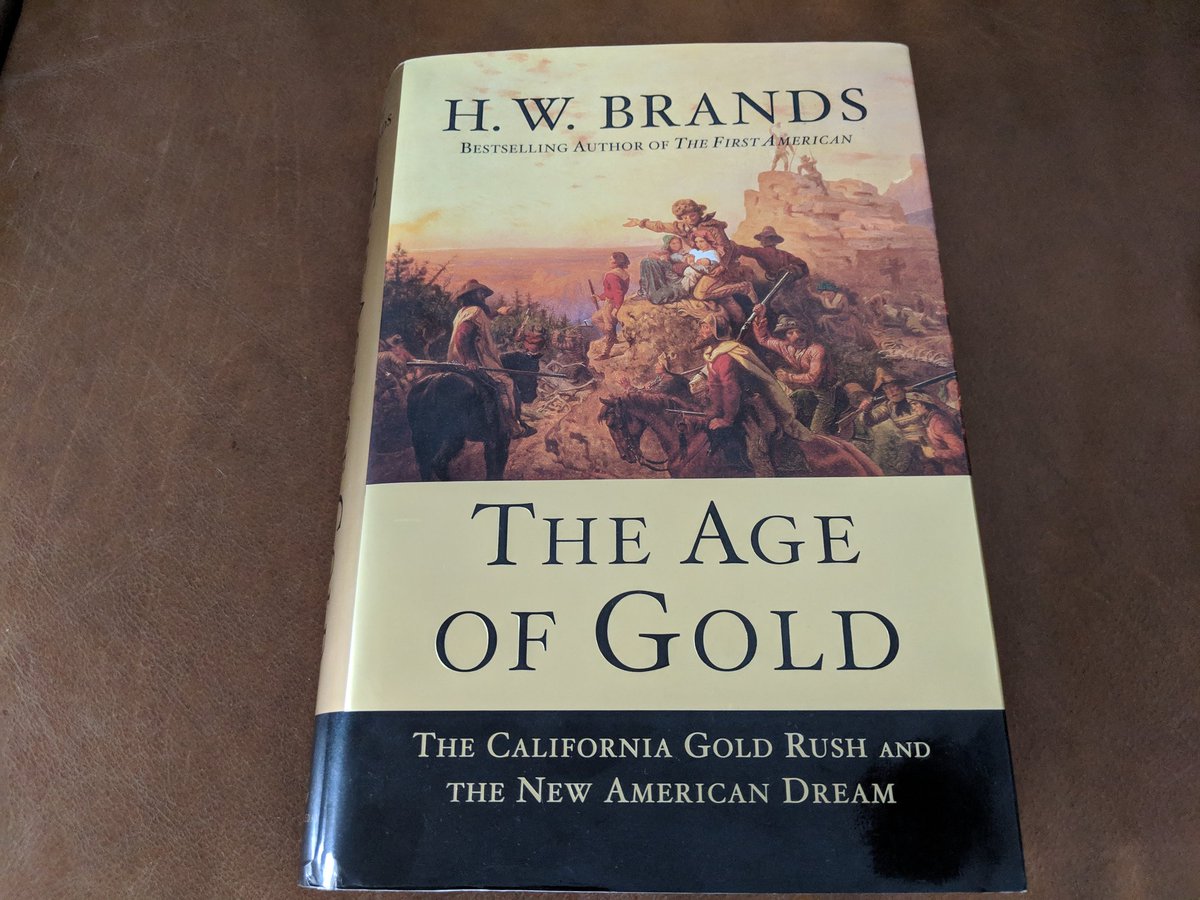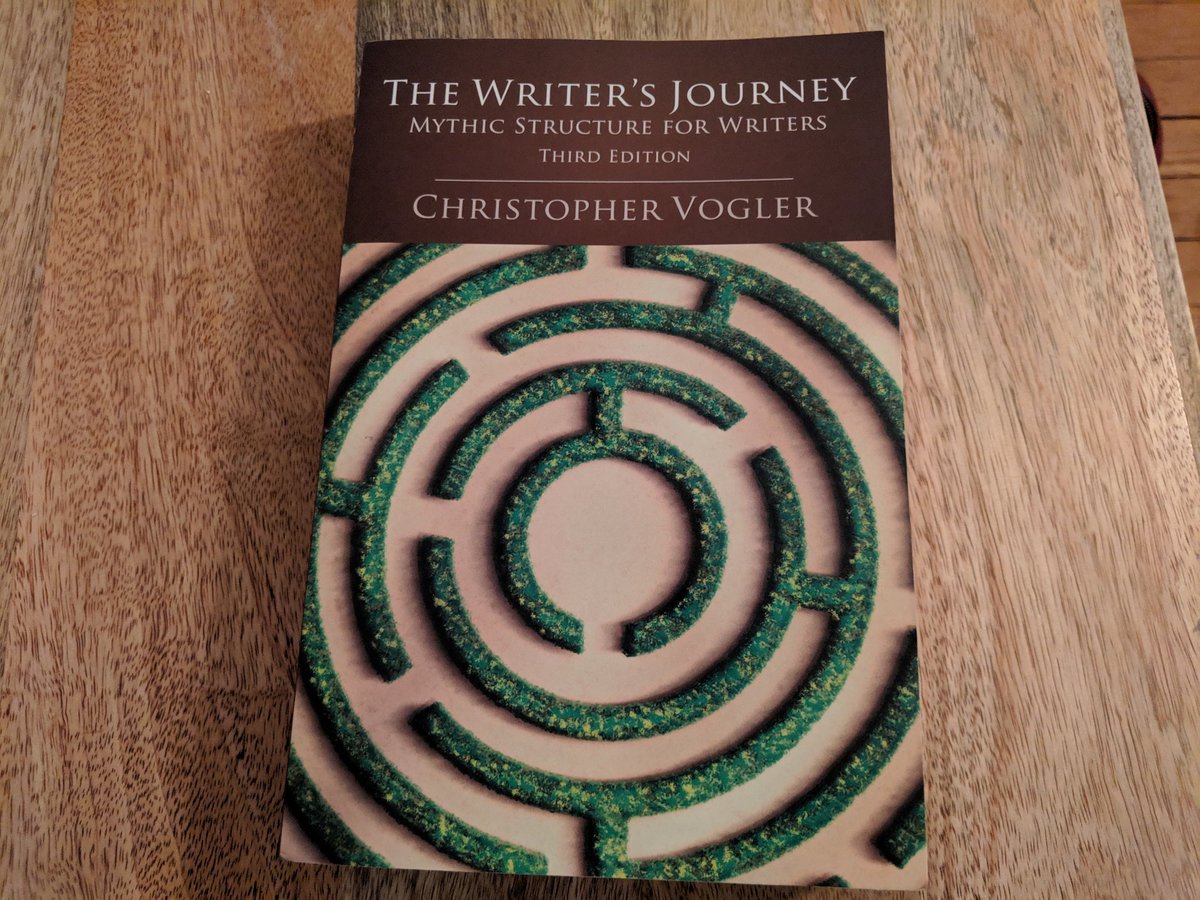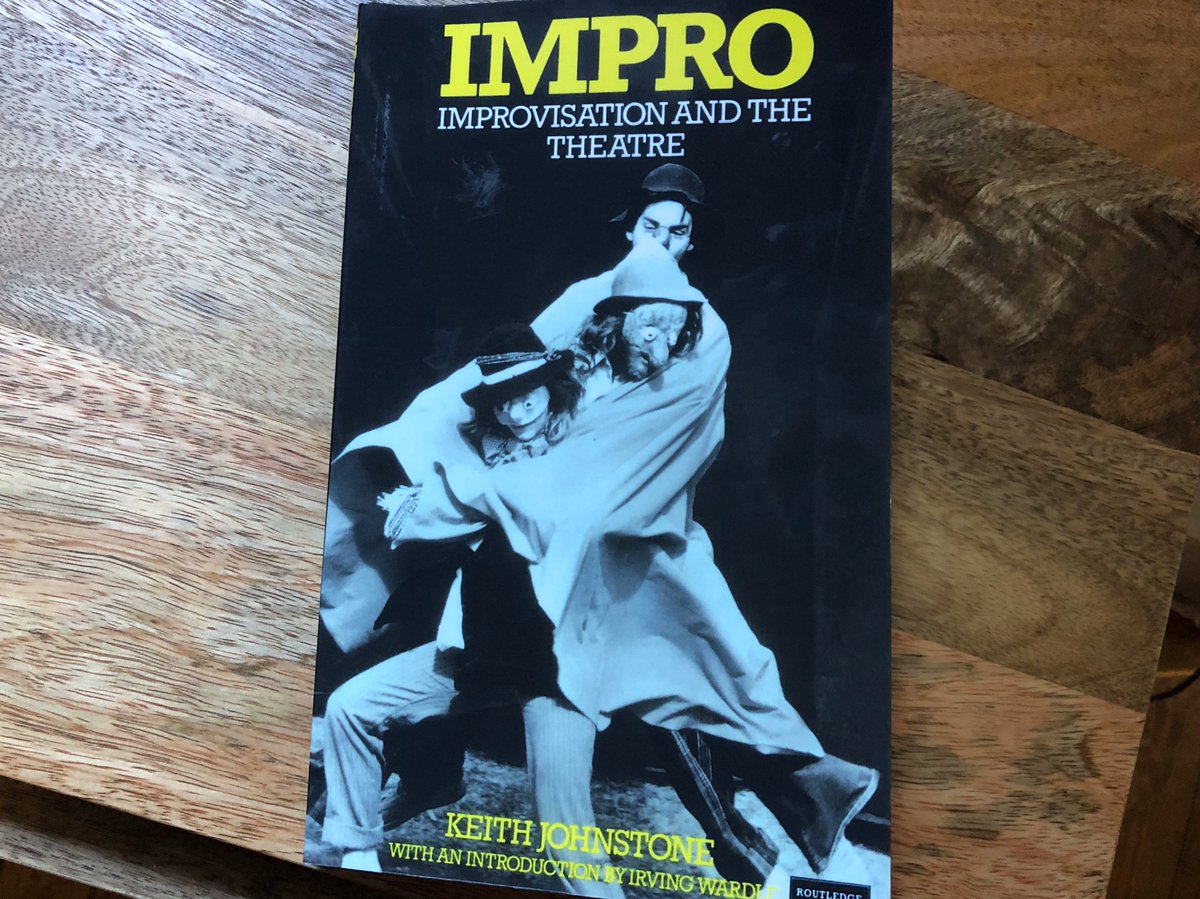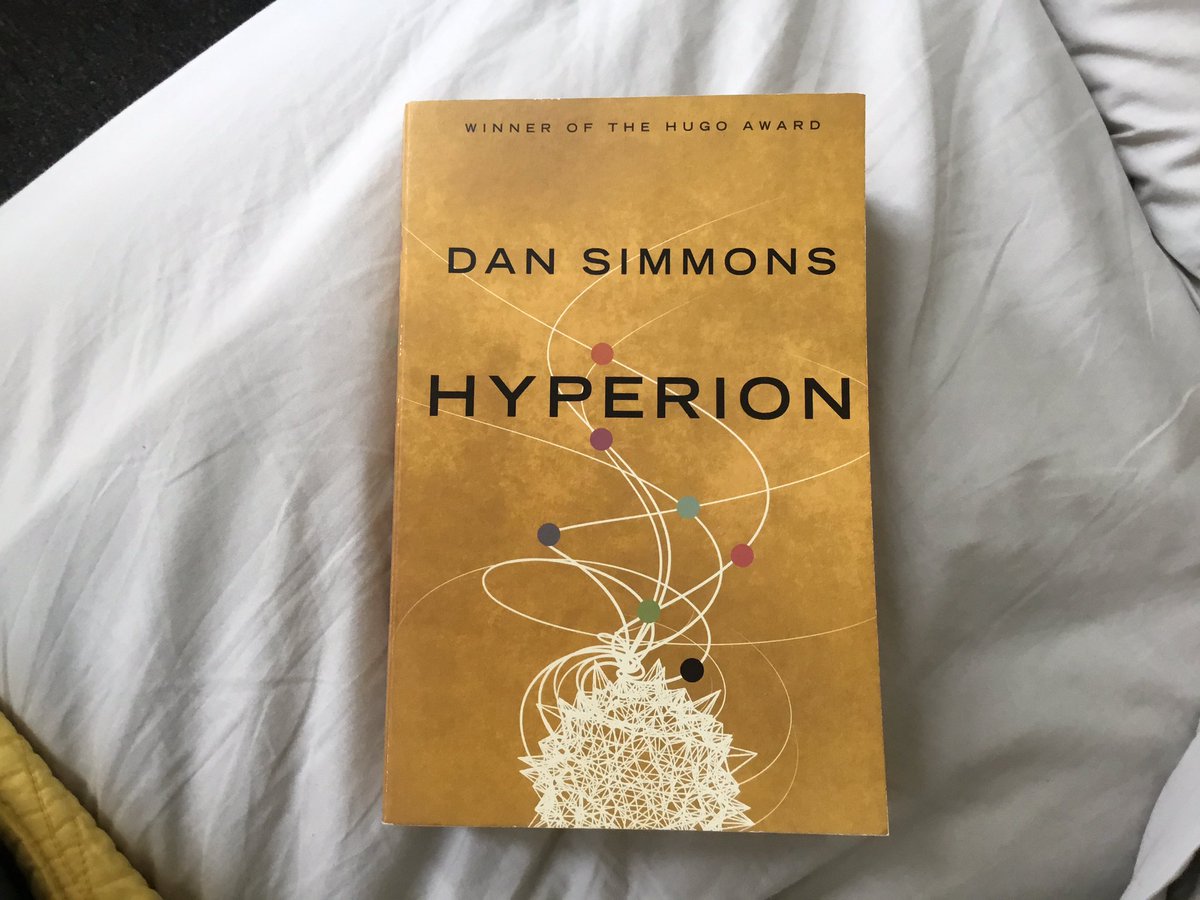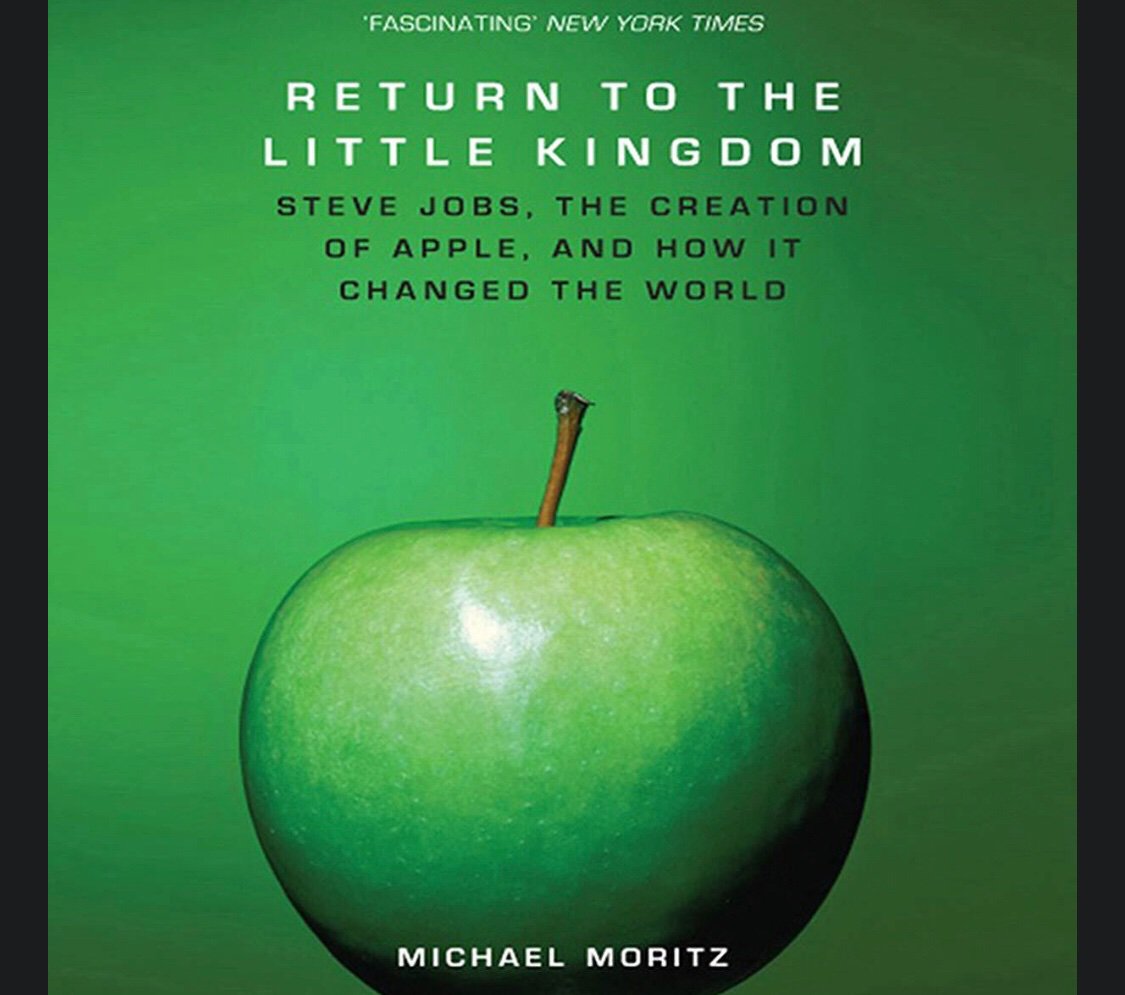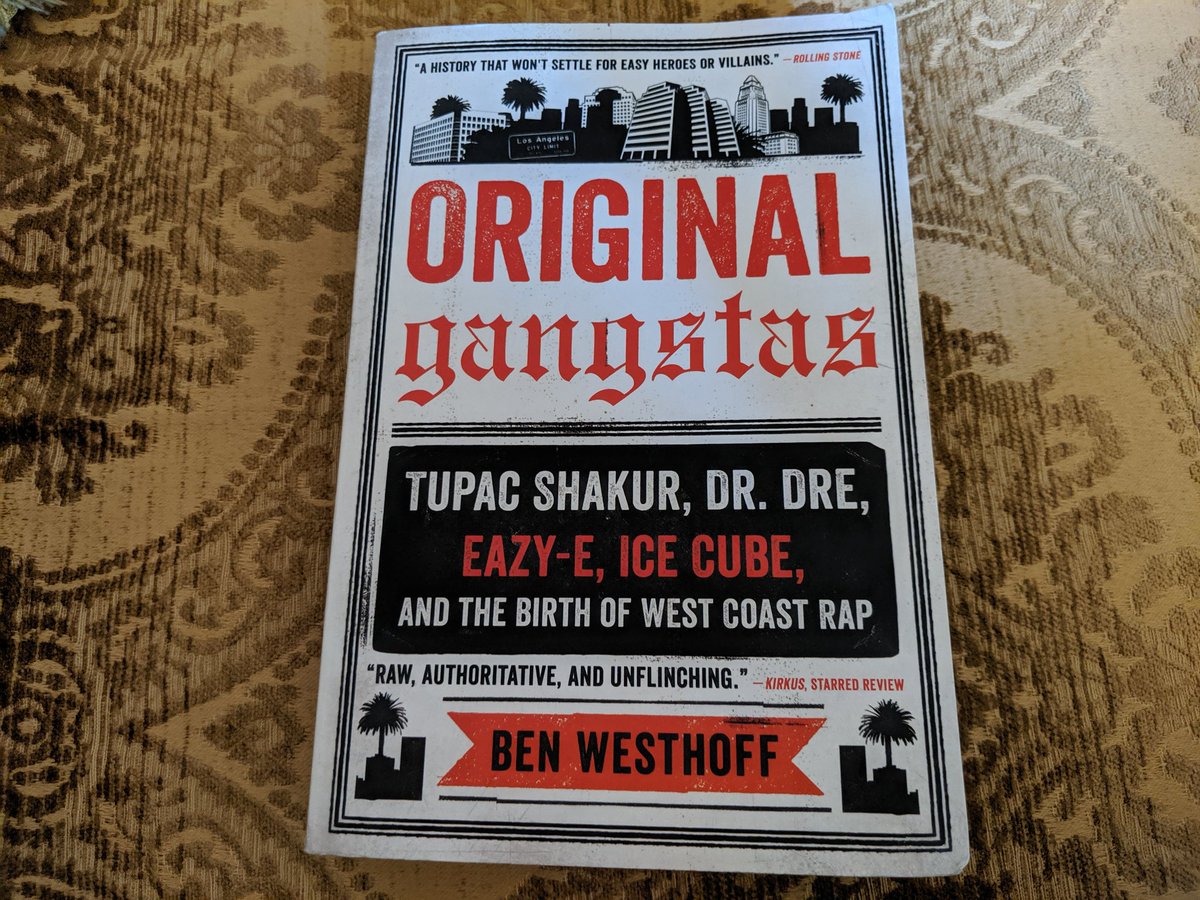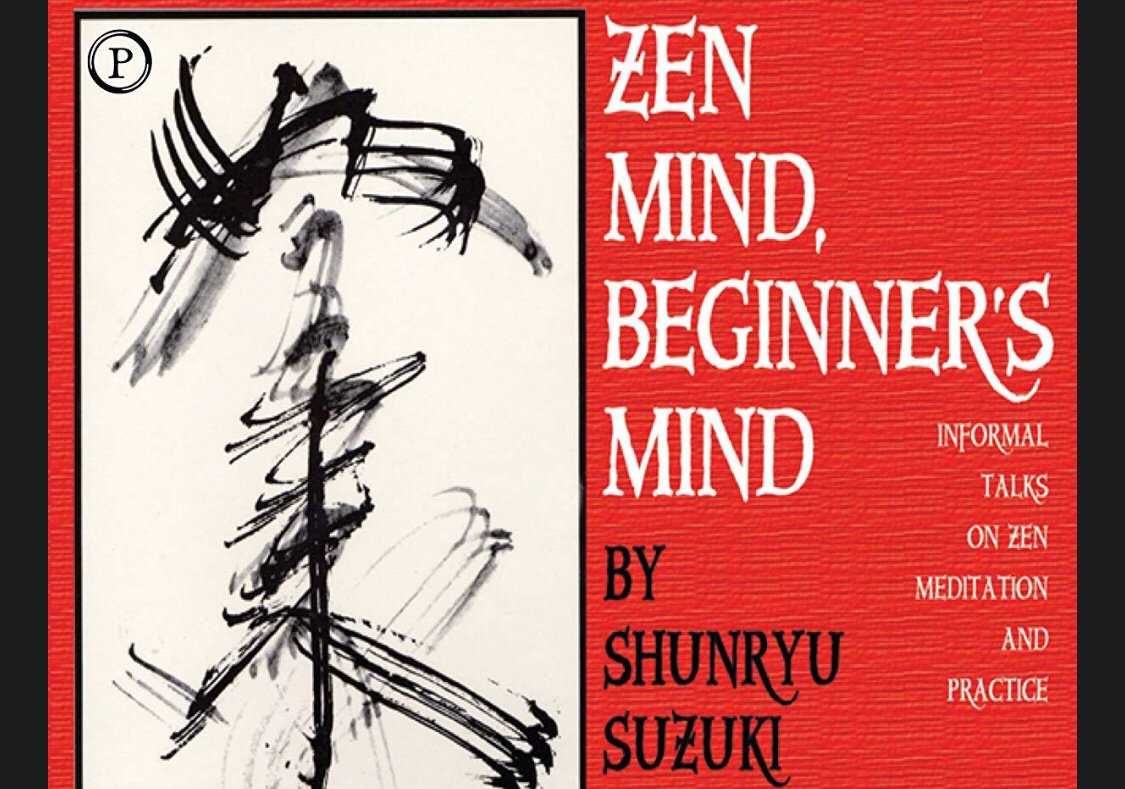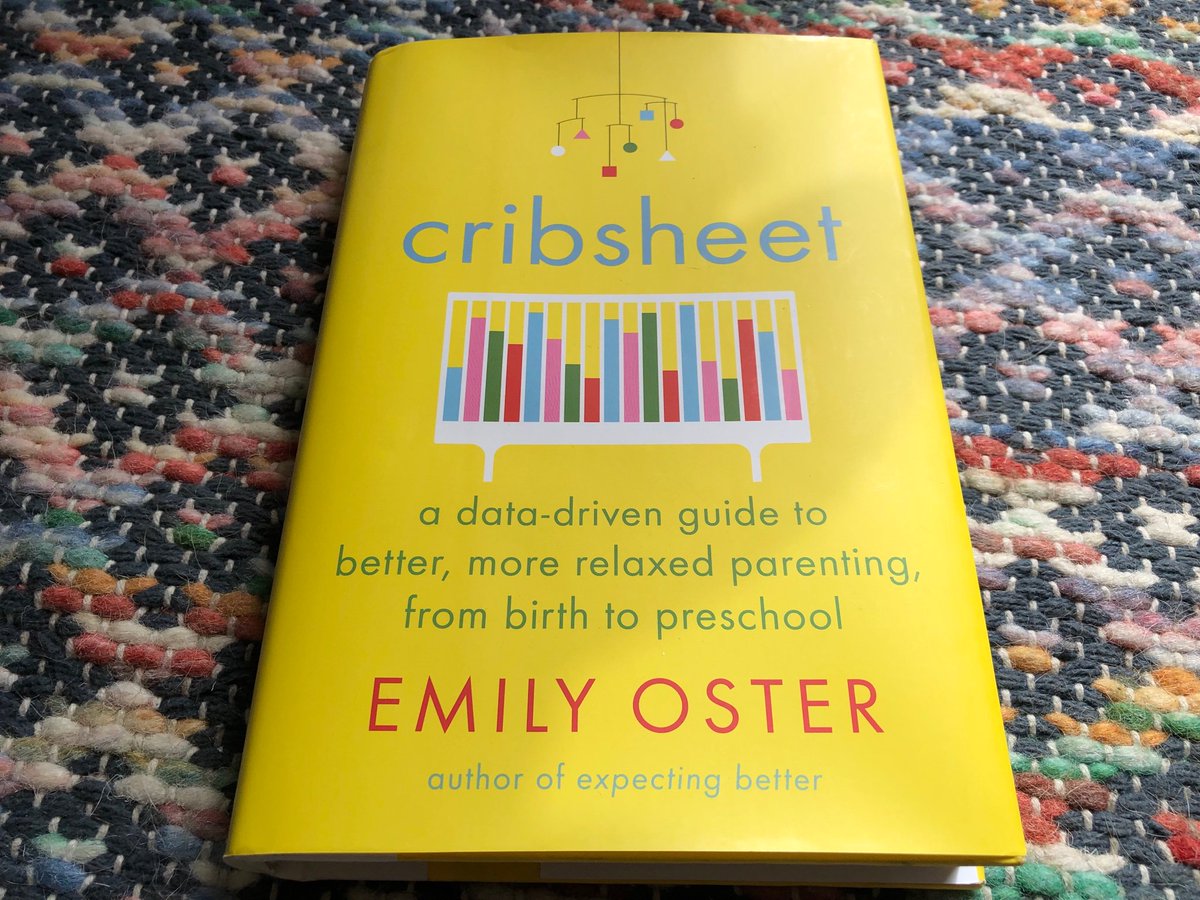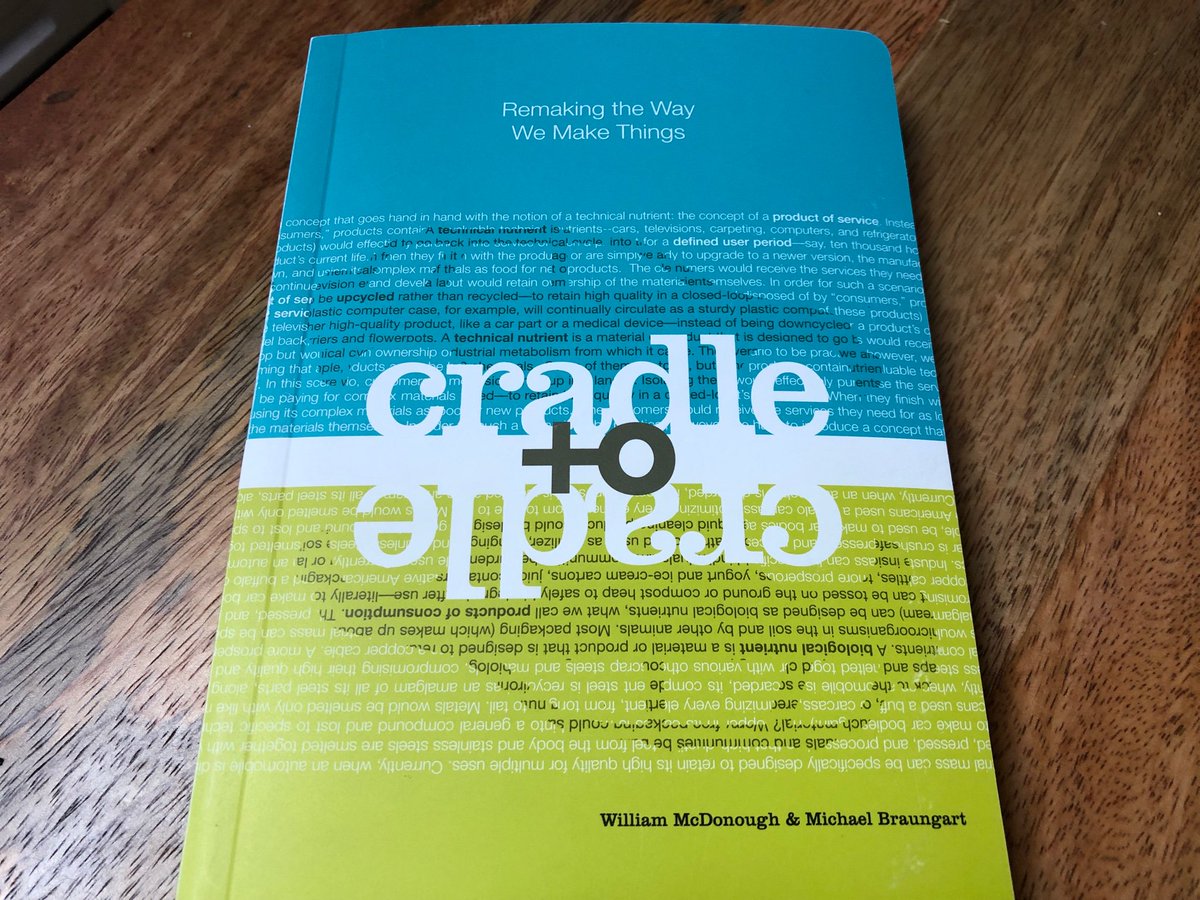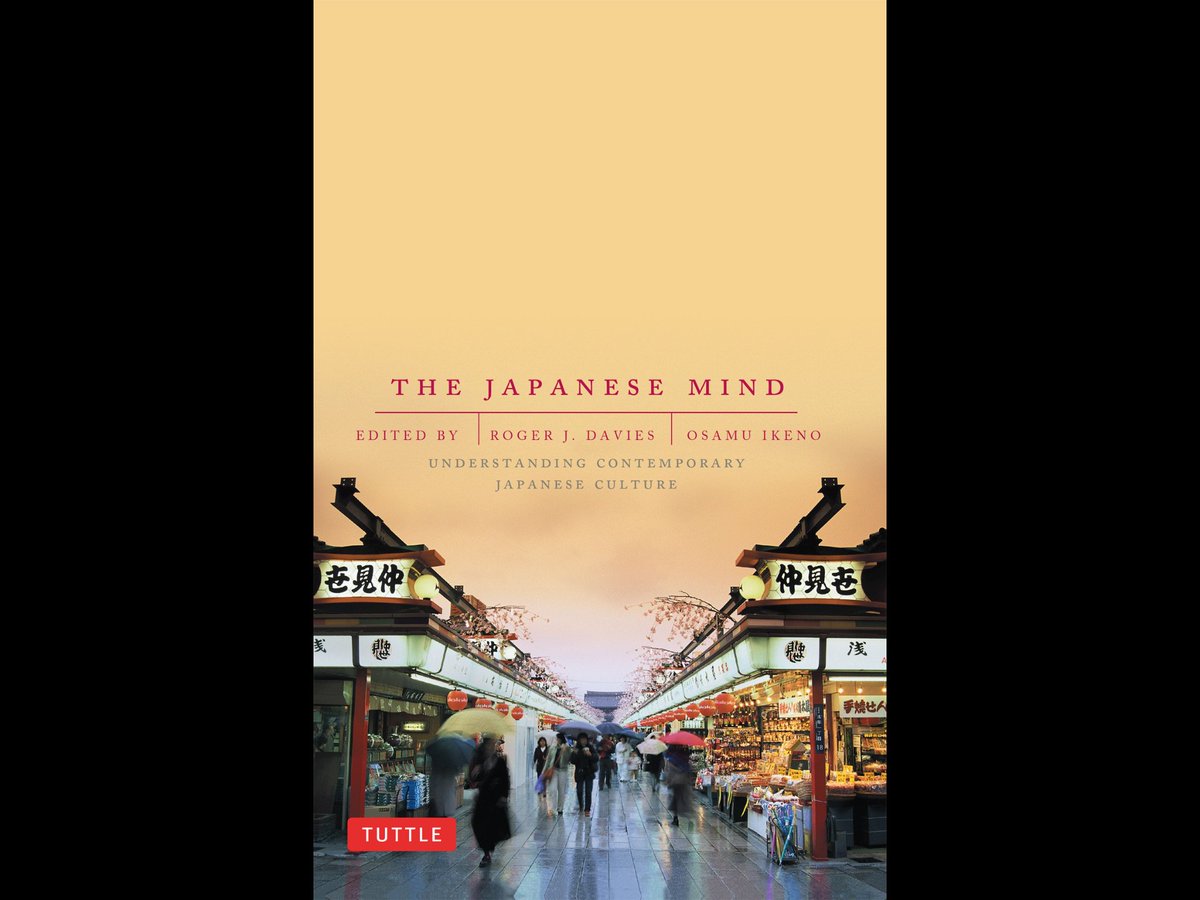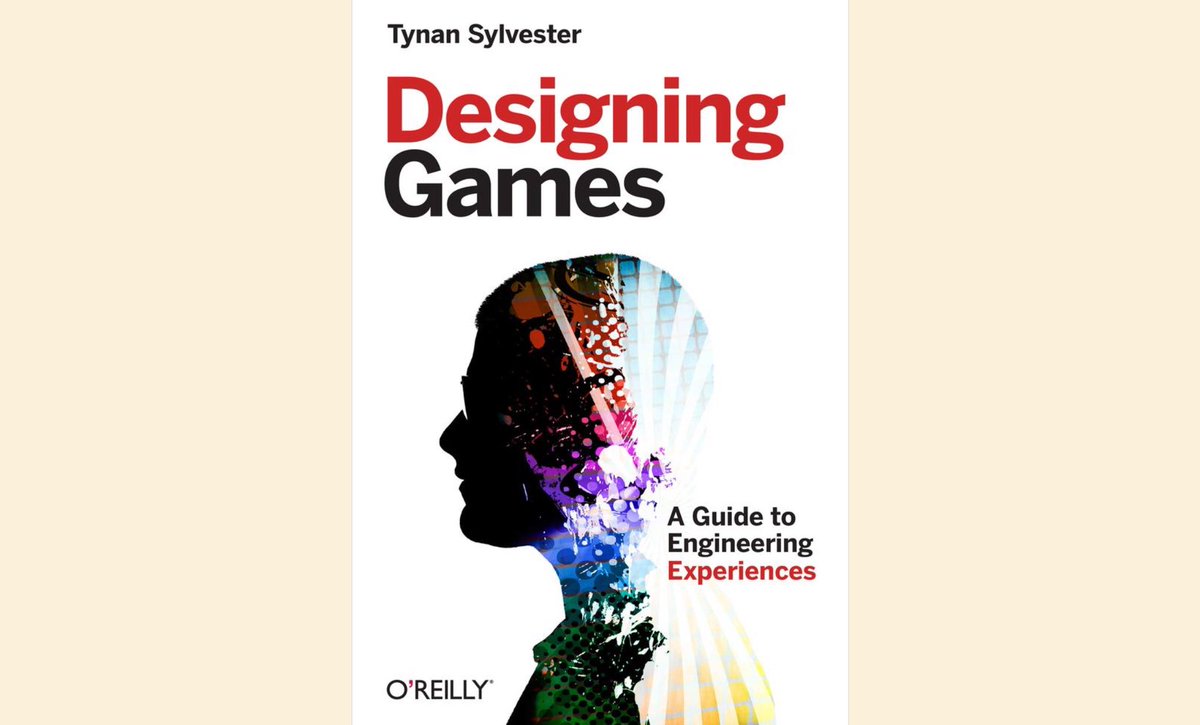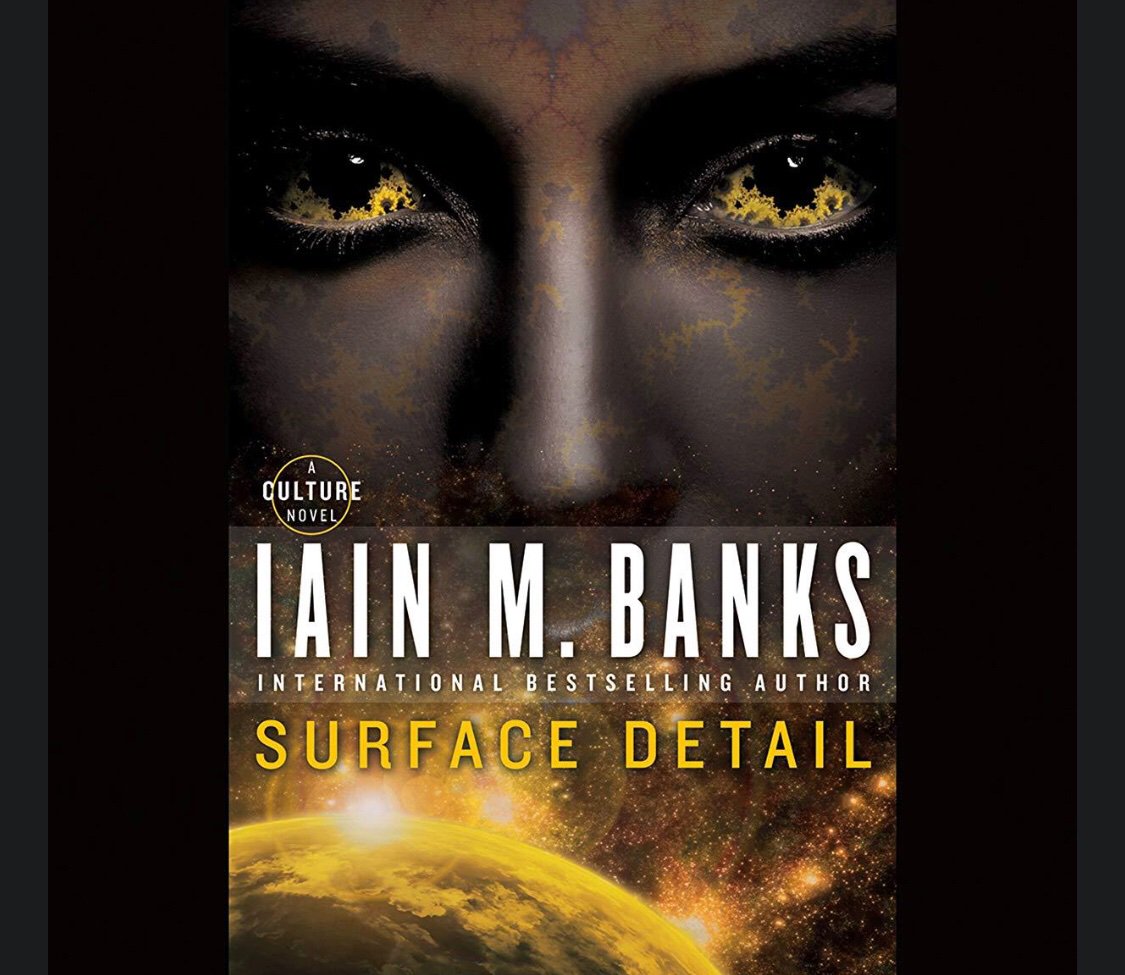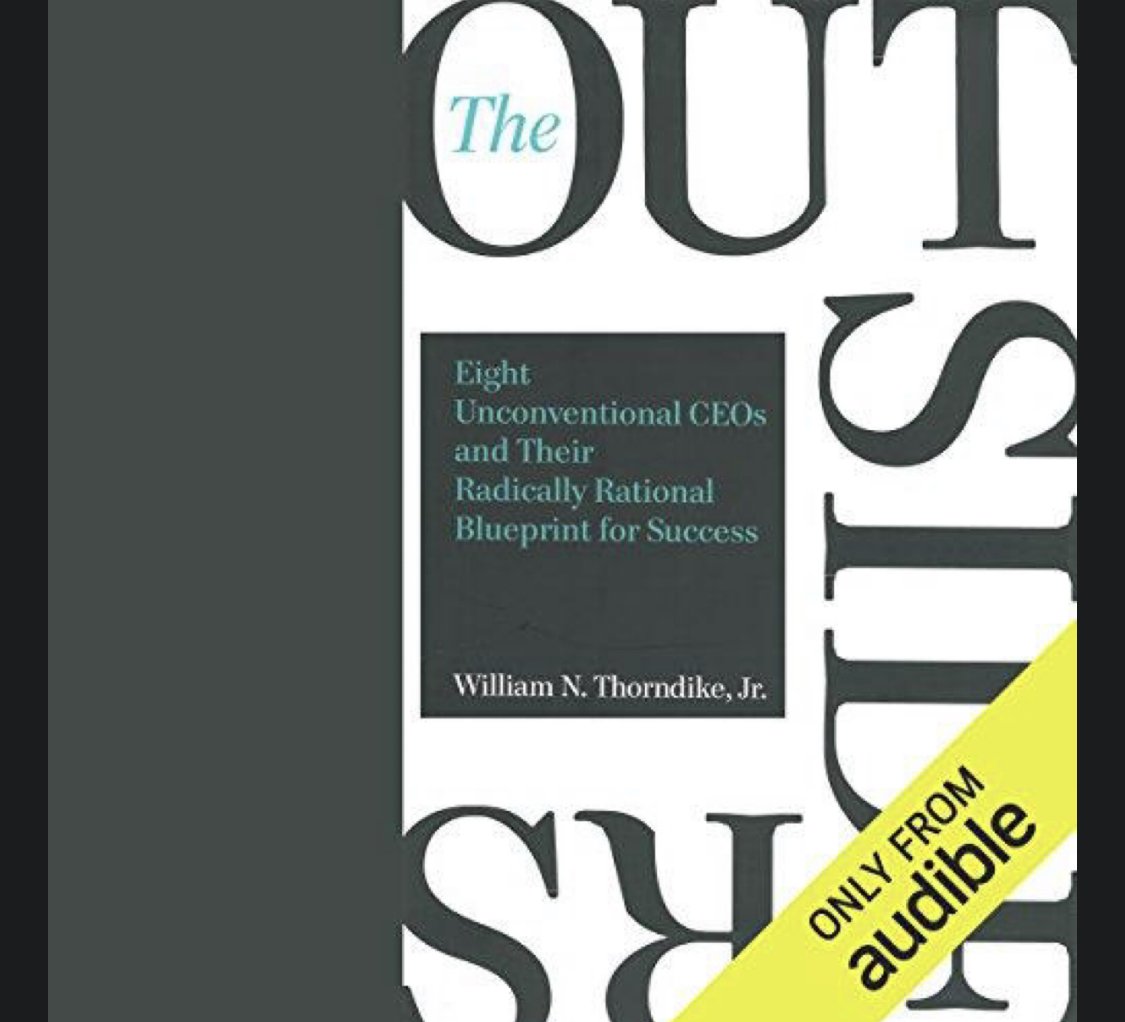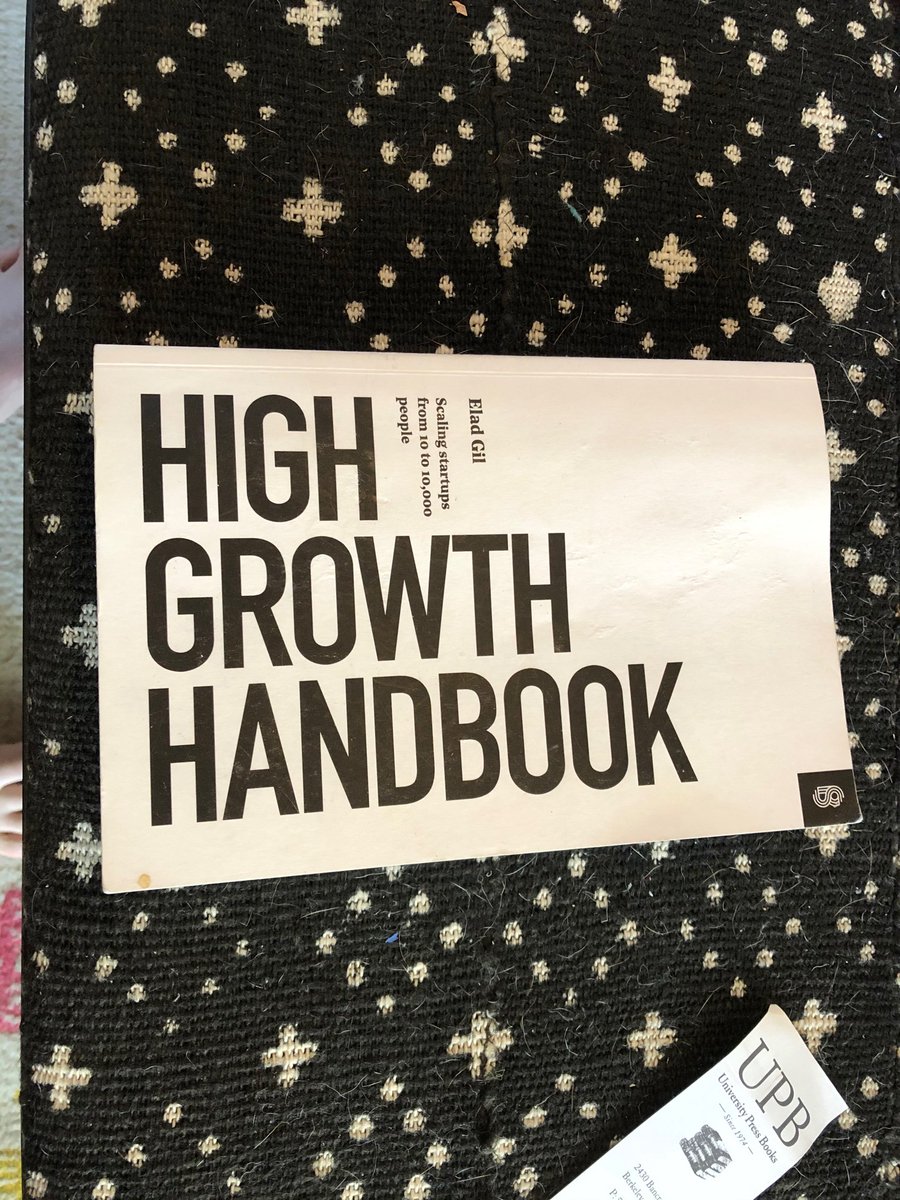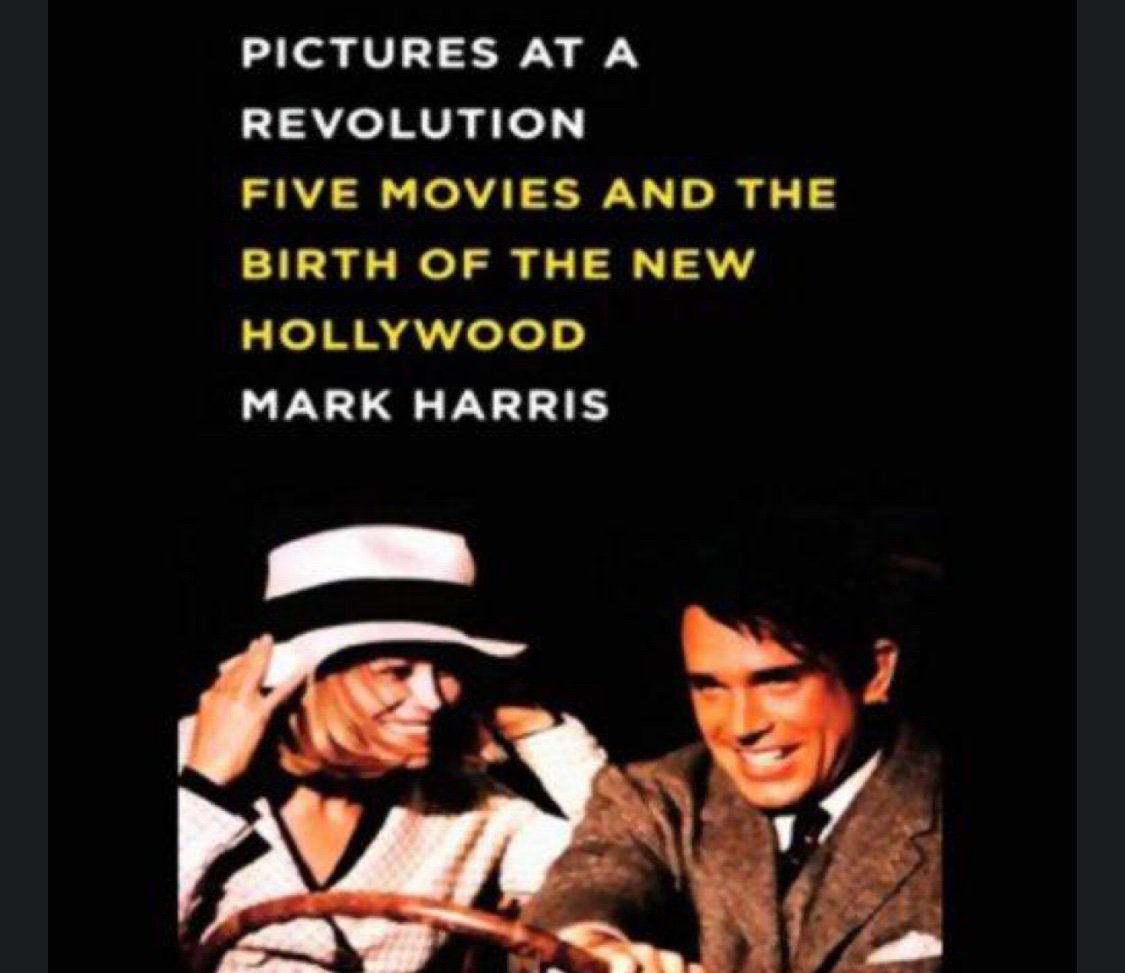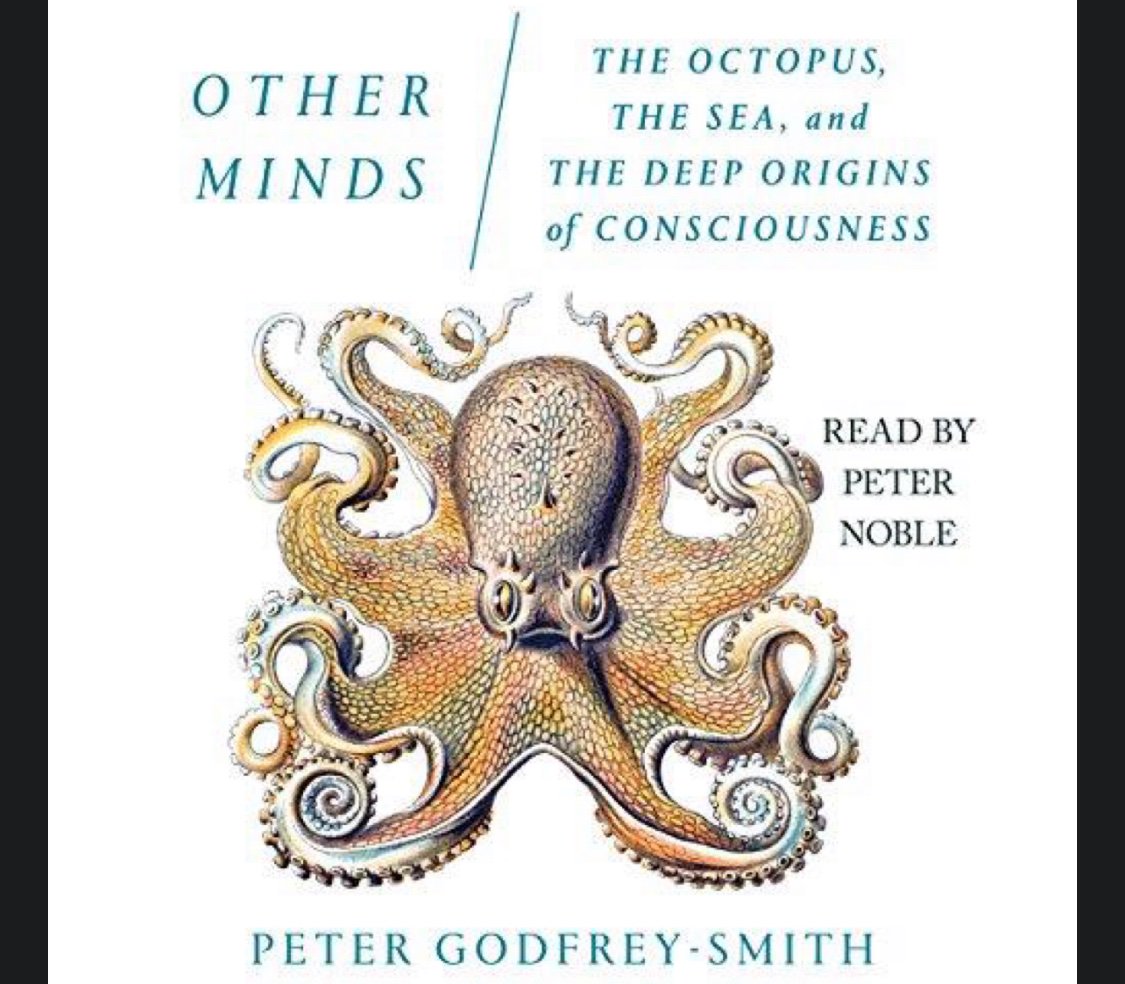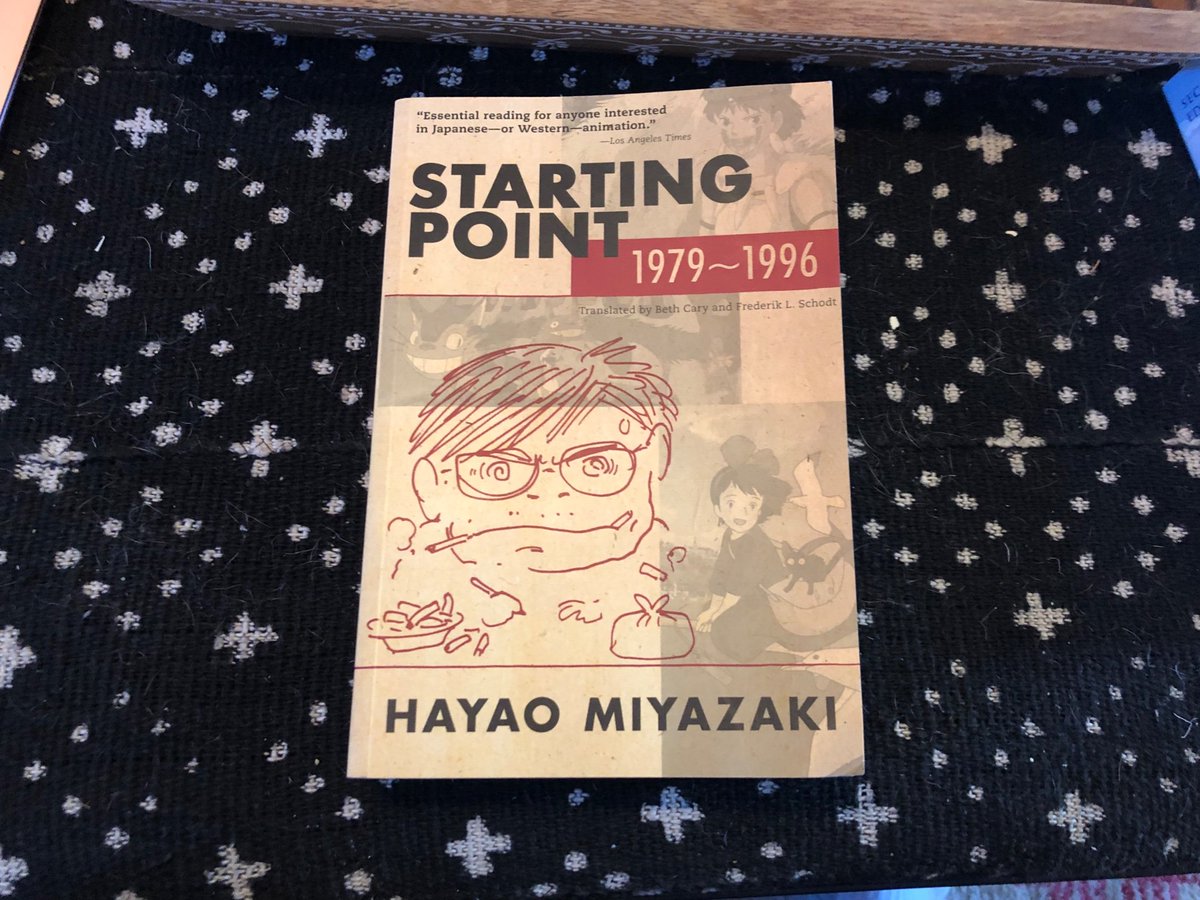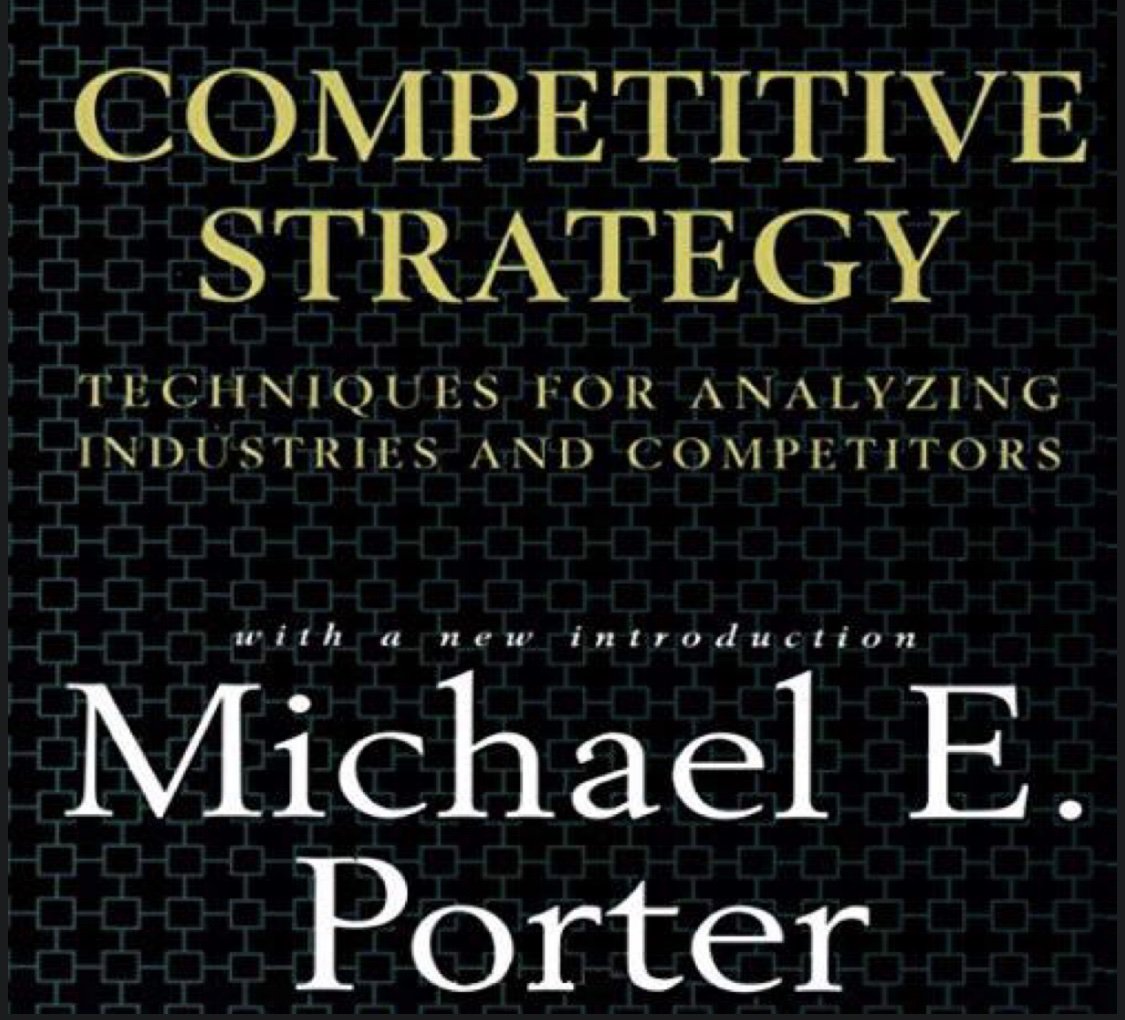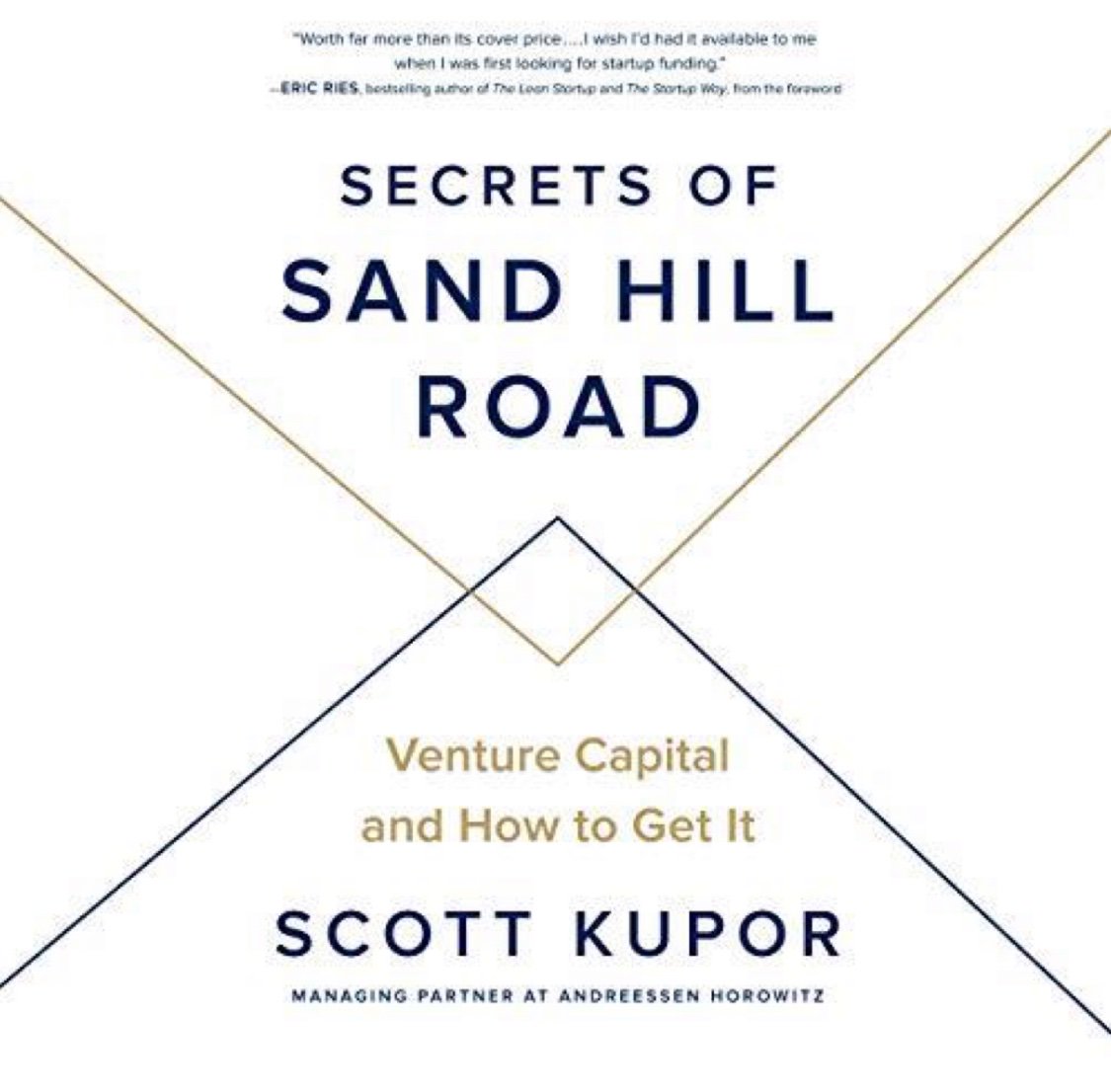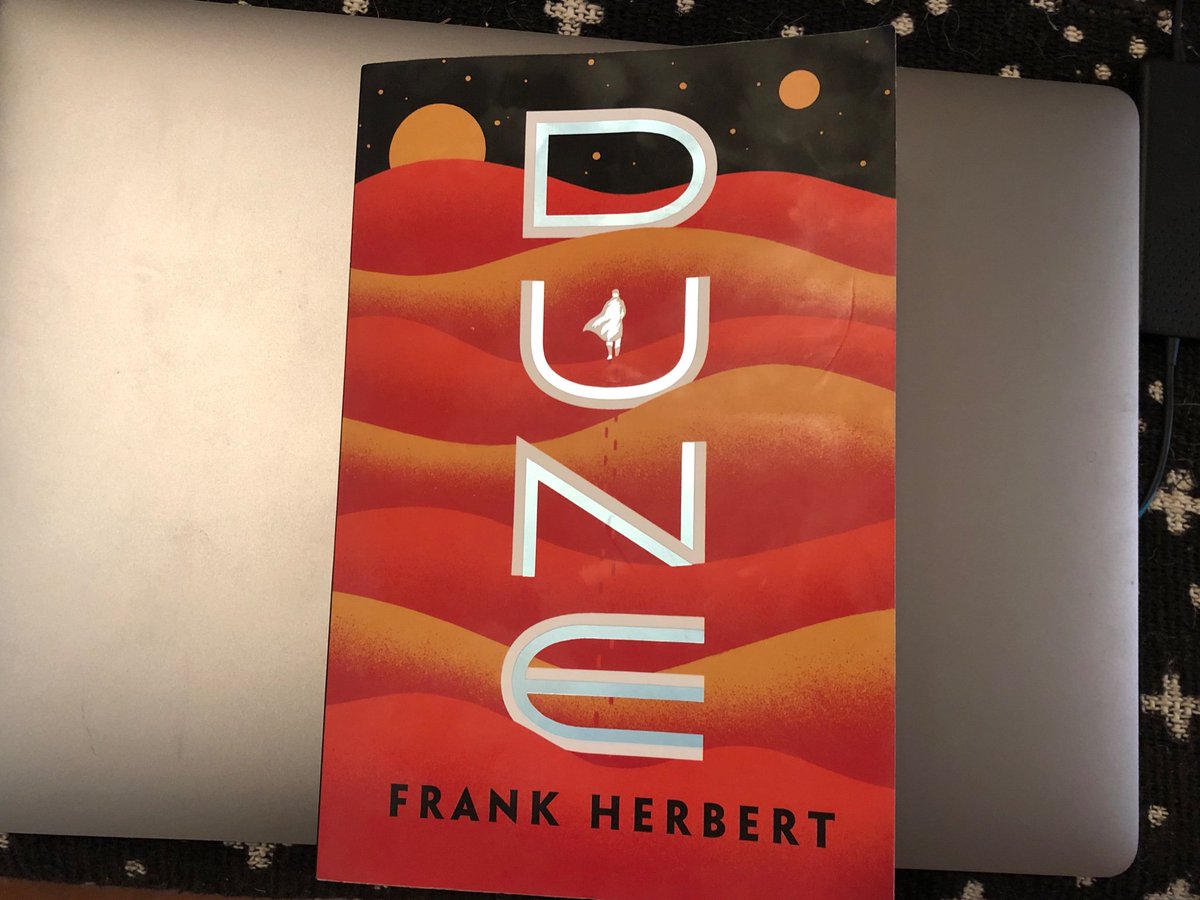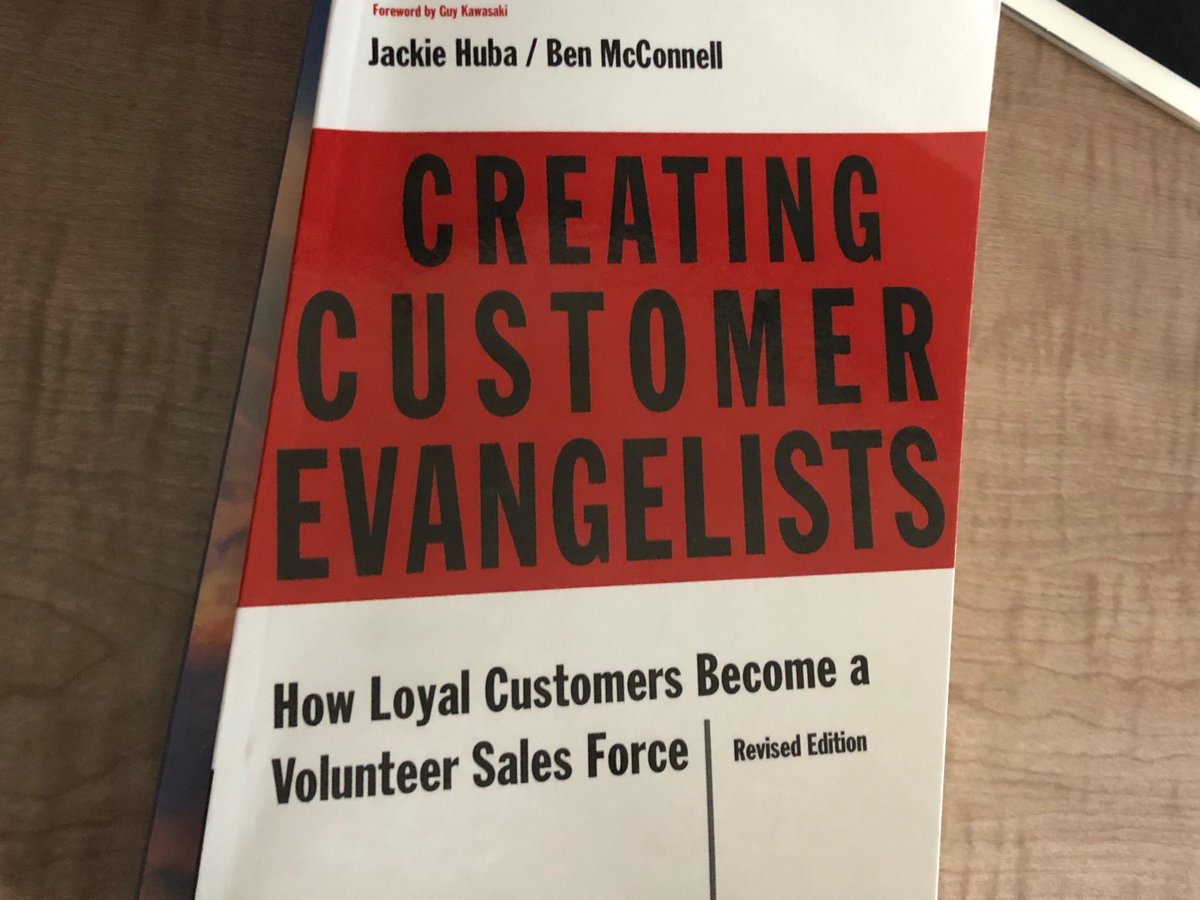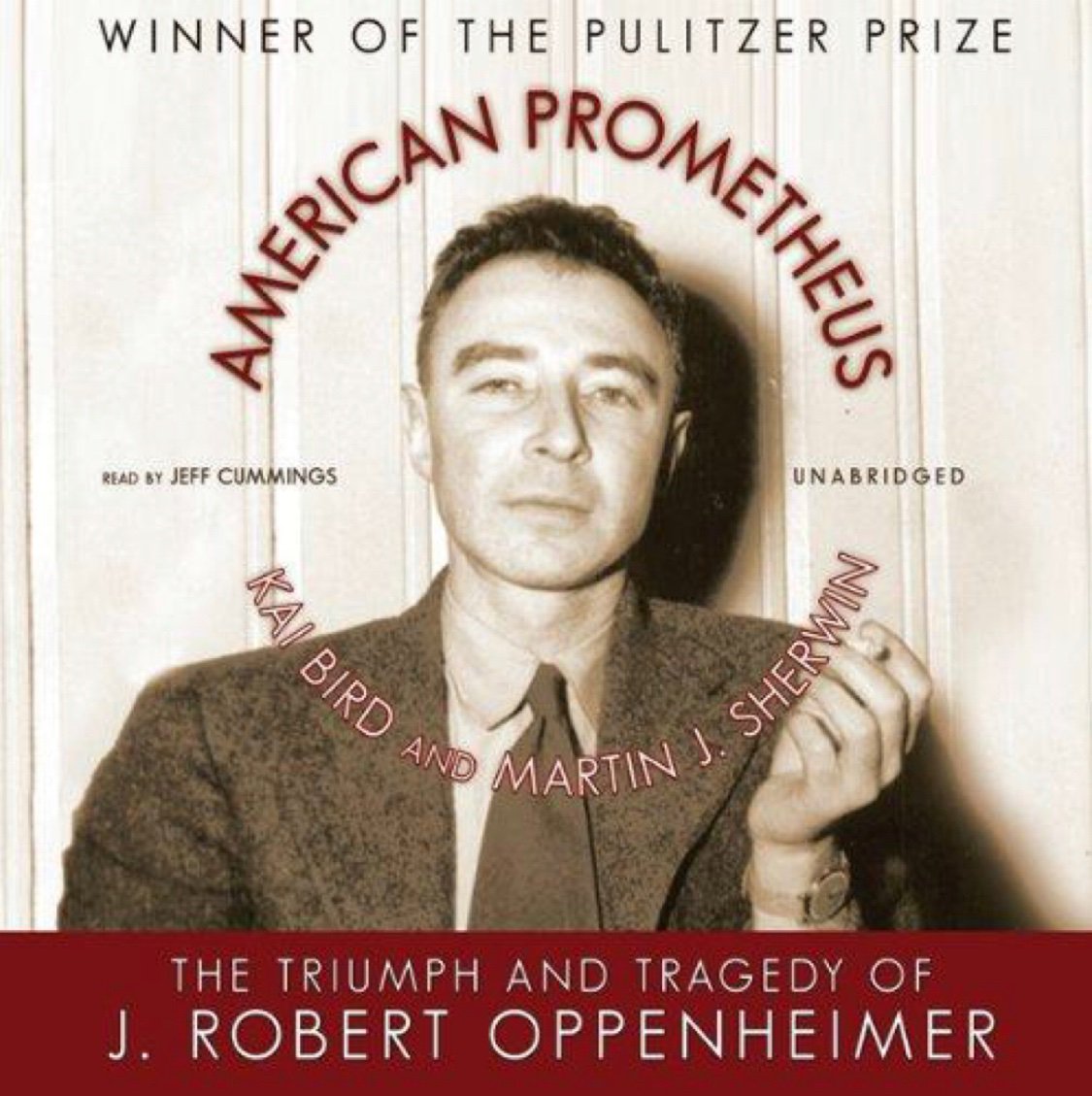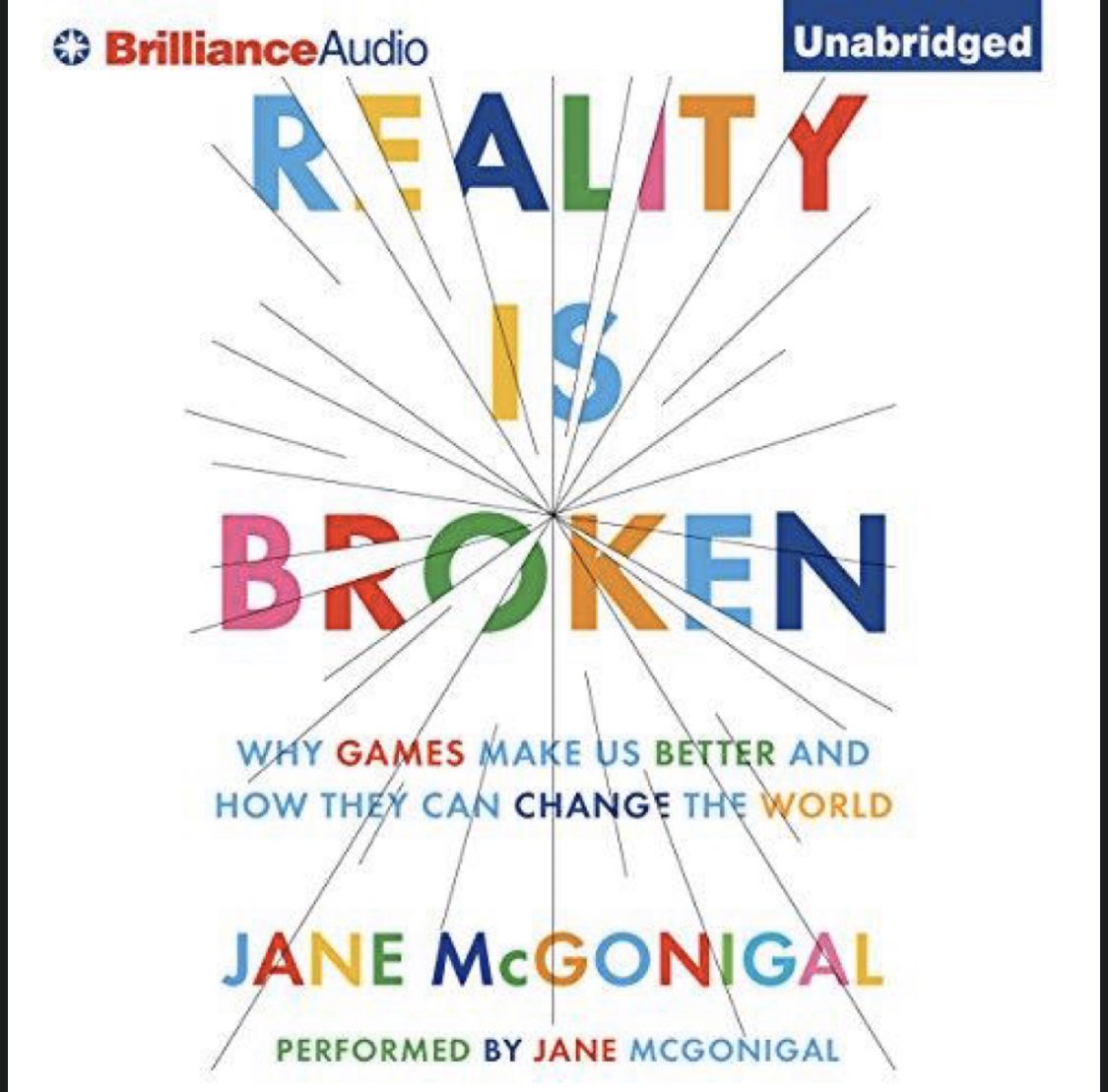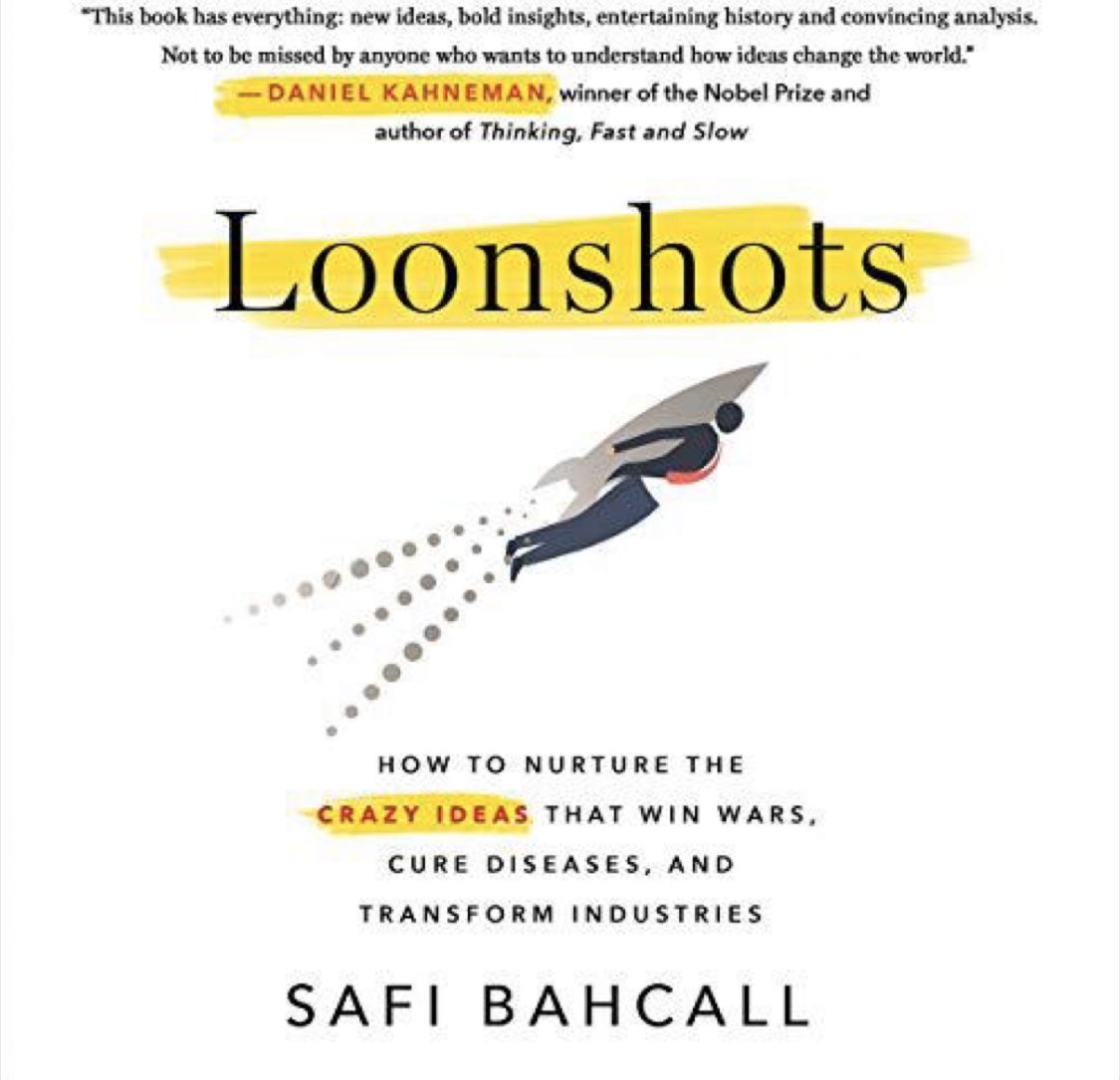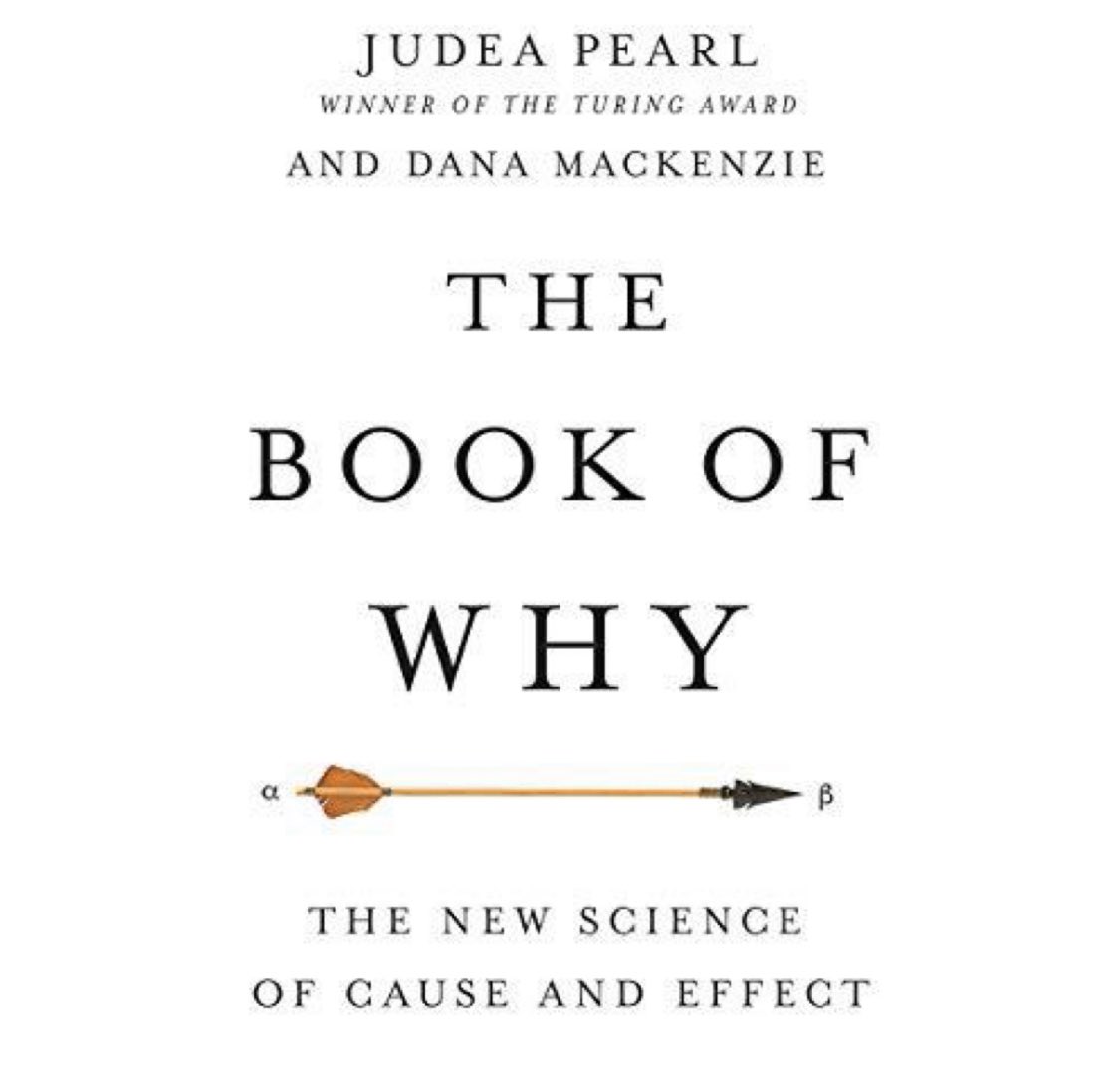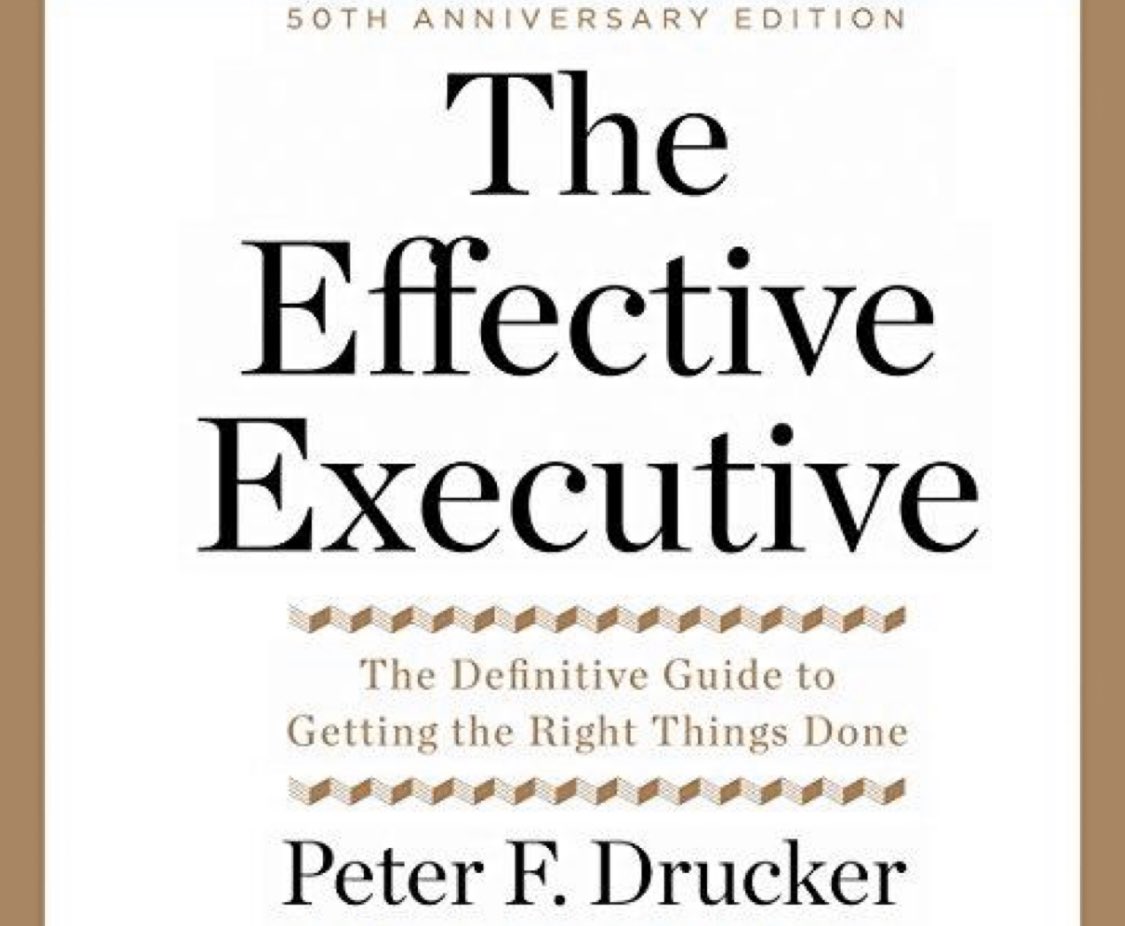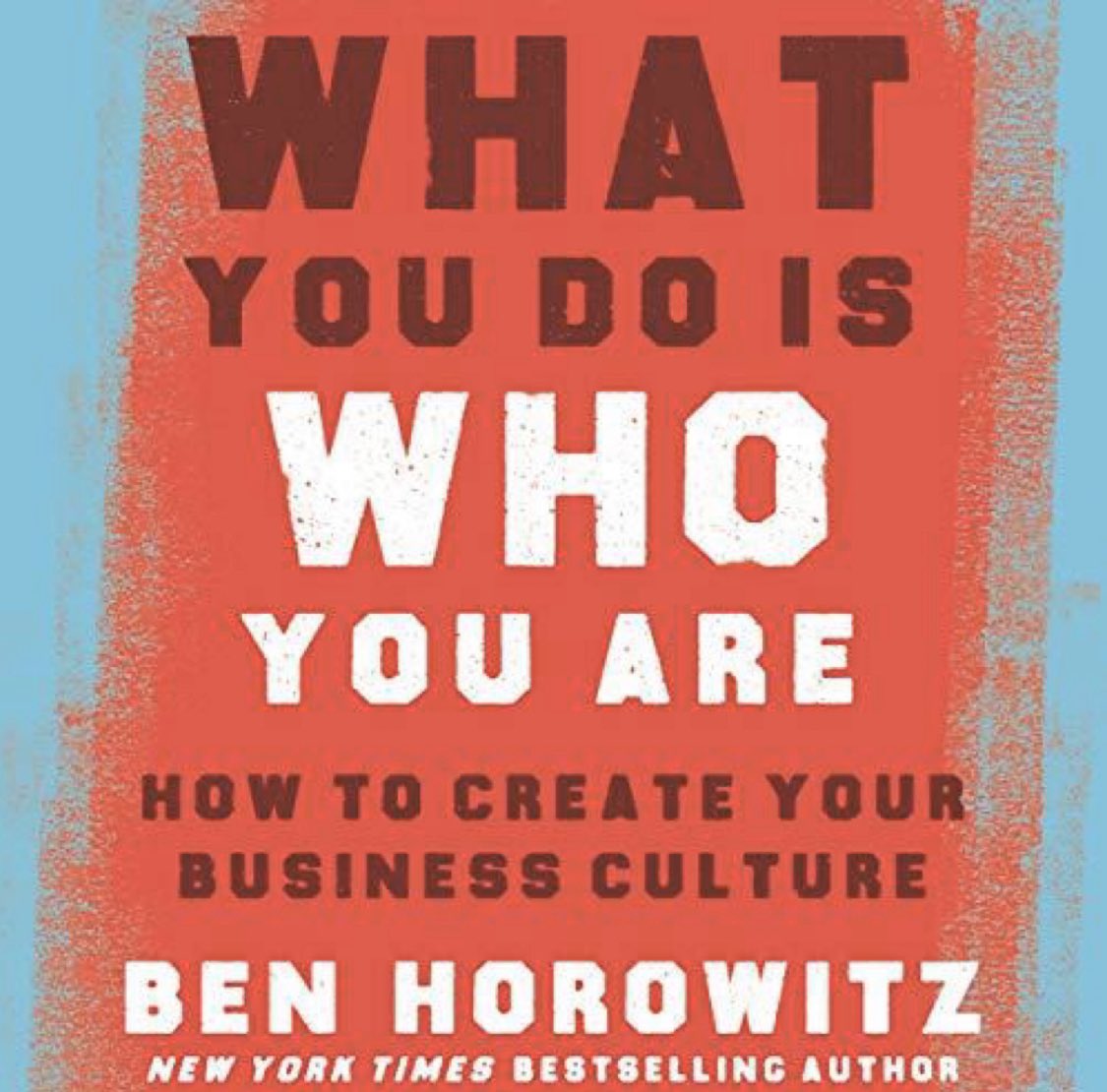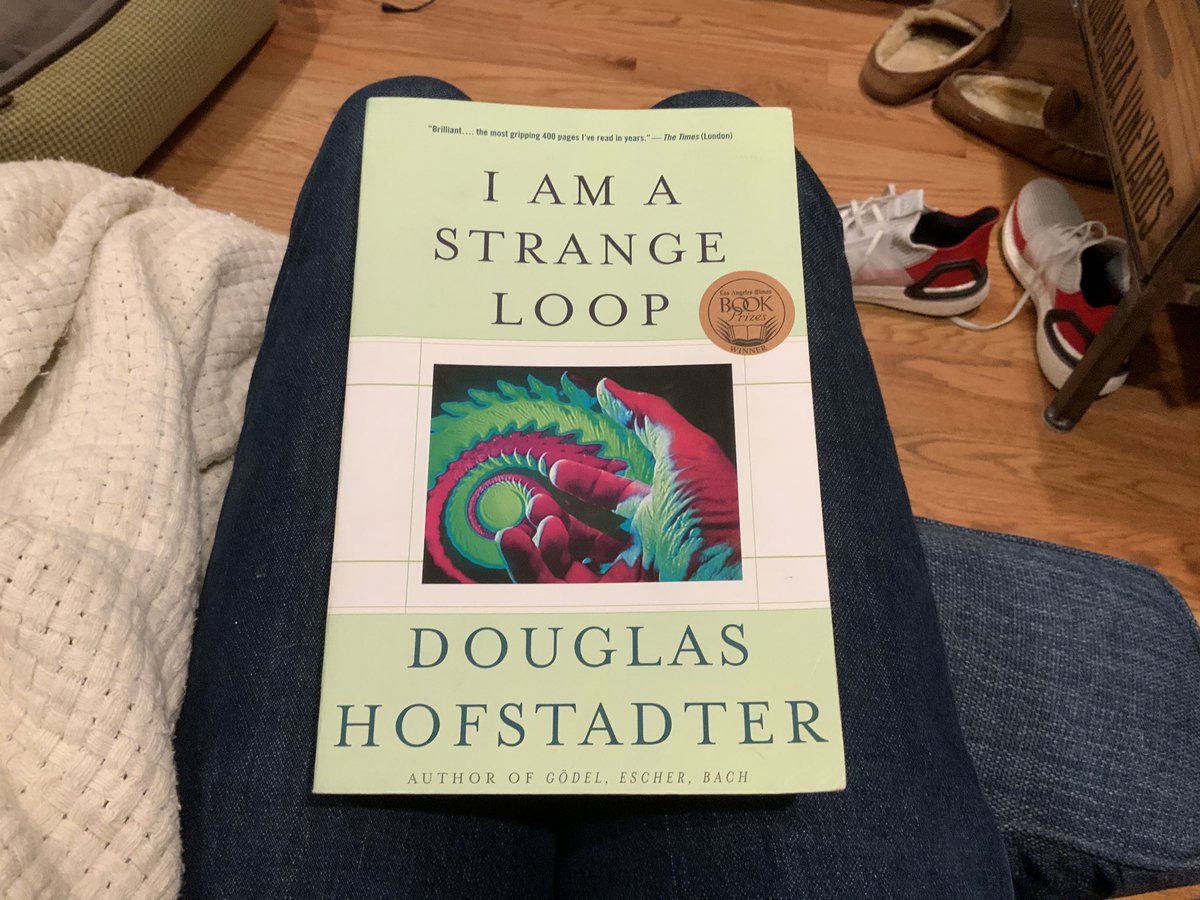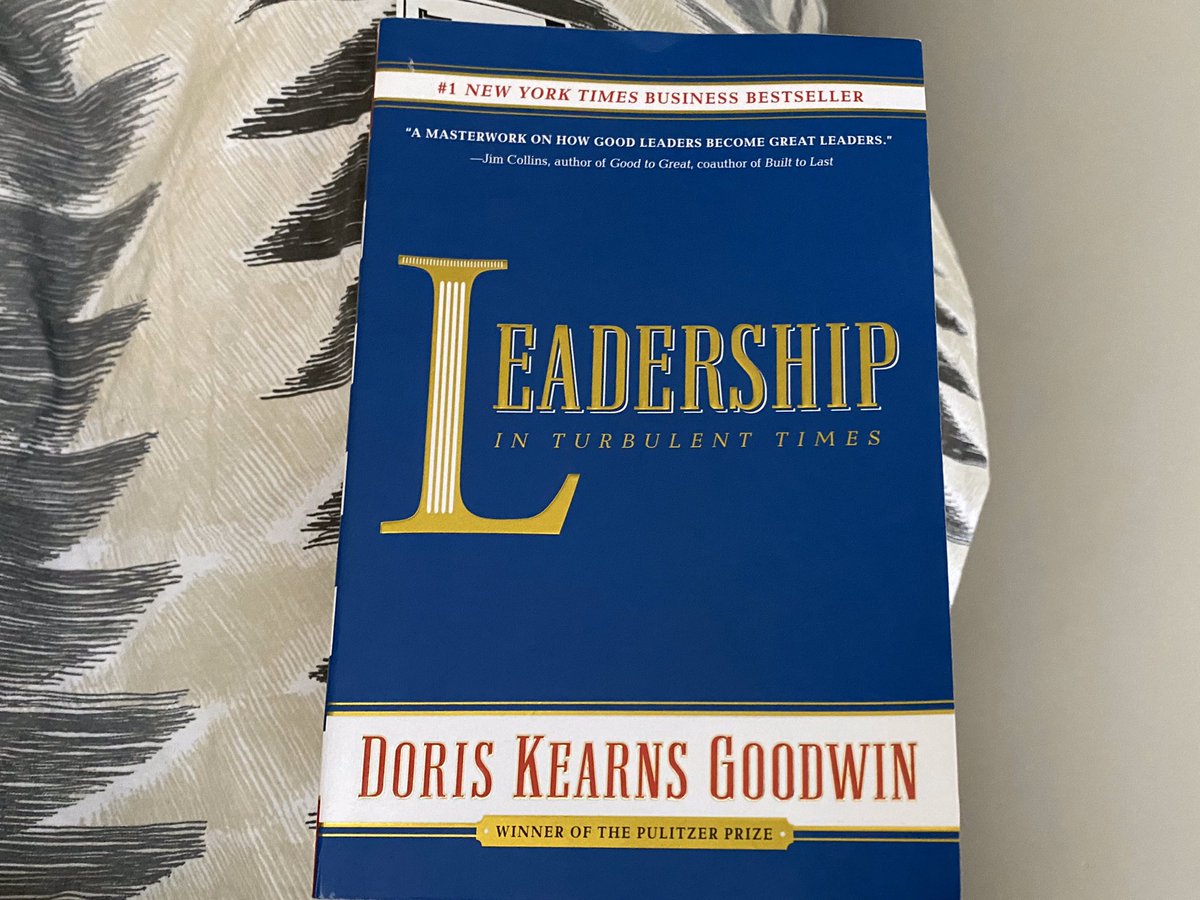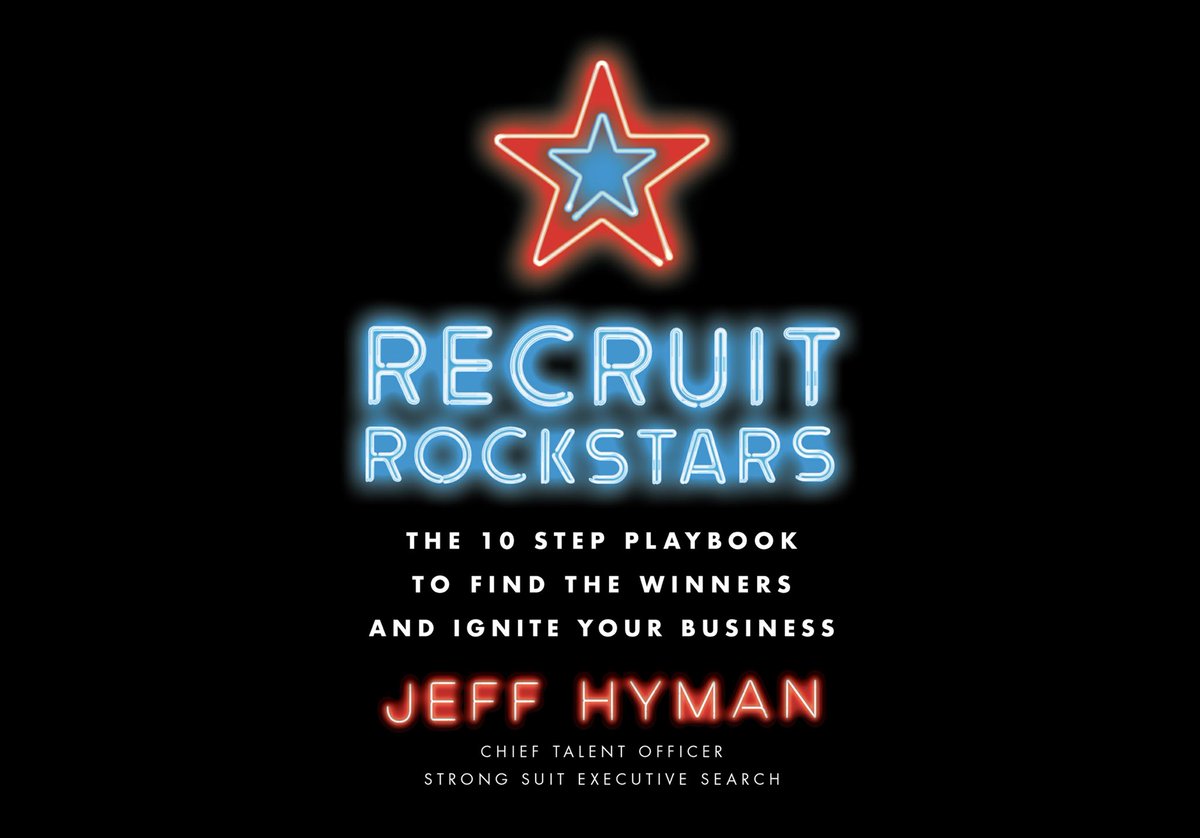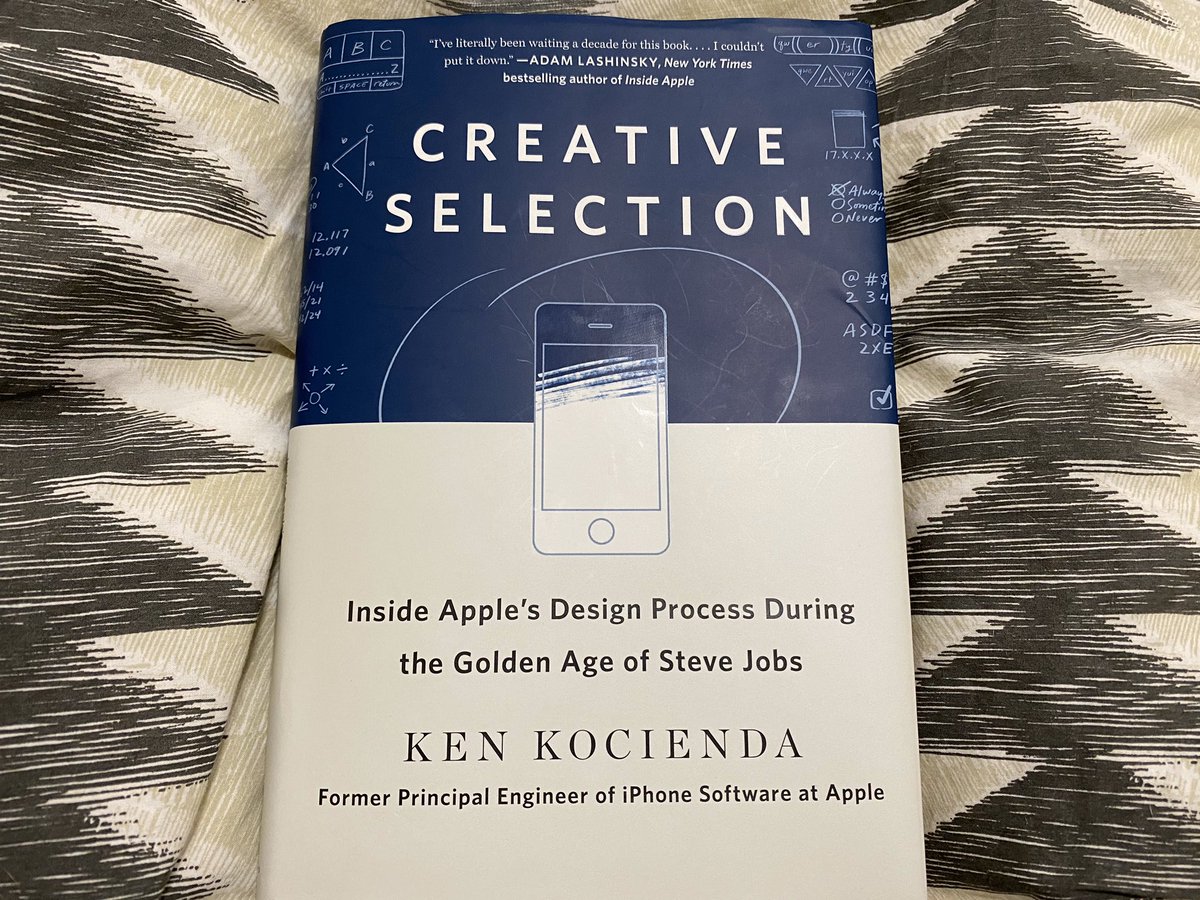Starting a thread of books I finish in 2019.
2018 thread: https://twitter.com/kylebrussell/status/948747711599099904?s=20
Book">https://twitter.com/kylebruss... 1
Lesson:
The collective action in the 20th century toward consumerist reforms led to a political economy so oriented around convenience/value that it inhibits further collective action.
2018 thread: https://twitter.com/kylebrussell/status/948747711599099904?s=20
Book">https://twitter.com/kylebruss... 1
Lesson:
The collective action in the 20th century toward consumerist reforms led to a political economy so oriented around convenience/value that it inhibits further collective action.
Book 2
Lesson:
When generative systems can automatically create high-fidelity art, human creativity can move up a level of abstraction to adding and removing constraints from a system and curating output.
Lesson:
When generative systems can automatically create high-fidelity art, human creativity can move up a level of abstraction to adding and removing constraints from a system and curating output.
Book 4
Lesson:
We seriously interfere with the development and mental health of teenagers with early school start times.
Lesson:
We seriously interfere with the development and mental health of teenagers with early school start times.
Book 5
Lesson:
Conformity and rebellion are paths for those who struggle to cope with contradiction and ambiguity. Changing a system from the inside requires subversiveness.
Lesson:
Conformity and rebellion are paths for those who struggle to cope with contradiction and ambiguity. Changing a system from the inside requires subversiveness.
Book 6
Lesson:
Copy the good you see in others. When you recognize their faults, correct them in yourself.
Lesson:
Copy the good you see in others. When you recognize their faults, correct them in yourself.
Book 7
Lesson:
Market power comes from advantages that let you charge higher prices or operate at lower costs while simultaneously preventing competitors from arbitraging away those benefits.
Lesson:
Market power comes from advantages that let you charge higher prices or operate at lower costs while simultaneously preventing competitors from arbitraging away those benefits.
Book 8
Lesson:
All great discoveries and inventions are expressions of personality by strong minds, not of the utilitarian thinking of the masses.
Lesson:
All great discoveries and inventions are expressions of personality by strong minds, not of the utilitarian thinking of the masses.
Book 9
Lesson:
Survival requires clever adaptation to the circumstances you face. Usually that means external challenges - but the true test is overcoming your own failings
Lesson:
Survival requires clever adaptation to the circumstances you face. Usually that means external challenges - but the true test is overcoming your own failings
Book 10
Lesson:
Eliminating the mechanisms by which people felt the costs of war (draft, war taxes, introducing drones) has led to aimless conflicts with no predictable exit circumstances.
Lesson:
Eliminating the mechanisms by which people felt the costs of war (draft, war taxes, introducing drones) has led to aimless conflicts with no predictable exit circumstances.
Book 11
Lesson:
Domestic bombing by radical leftists was a fact of life in US cities in the 1970s. Their ineffectiveness stems from lack of clear aims, capped functional network sizes, and drug addiction.
Lesson:
Domestic bombing by radical leftists was a fact of life in US cities in the 1970s. Their ineffectiveness stems from lack of clear aims, capped functional network sizes, and drug addiction.
Book 12
Lesson:
Once enacted, we must judge policies by their effects, not the intentions of their authors.
Lesson:
Once enacted, we must judge policies by their effects, not the intentions of their authors.
Book 13
Lesson:
Humans tend to identify very narrow problems to solve instead of looking at systems holistically; our solutions change the context around those problems, so our actions implicitly have more unintended effects than intended.
Lesson:
Humans tend to identify very narrow problems to solve instead of looking at systems holistically; our solutions change the context around those problems, so our actions implicitly have more unintended effects than intended.
Book 14
Lesson:
When people fail to see what’s right in front of them, it’s usually because they stopped looking too soon.
Lesson:
When people fail to see what’s right in front of them, it’s usually because they stopped looking too soon.
Book 15
Lesson:
California is forever in a Gold Rush: persistently cheerful, energetic, courageous, and teachable, but also careless, hasty, trusting in luck, and blind to our social duties.
Lesson:
California is forever in a Gold Rush: persistently cheerful, energetic, courageous, and teachable, but also careless, hasty, trusting in luck, and blind to our social duties.
Book 16
Lesson:
Stories are orientation devices, making us more aware of our identities and responsibilities to the world. They act on us by disorienting us into a state of suggestibility with frequent reversals of circumstance.
Lesson:
Stories are orientation devices, making us more aware of our identities and responsibilities to the world. They act on us by disorienting us into a state of suggestibility with frequent reversals of circumstance.
Book 17
Lesson:
Our personalities are not our true selves, but masks that we put on to control how others see us, different from the crowd along acceptable dimensions. Those who appear most & #39;normal& #39; are those most suggestible to social coercion.
Lesson:
Our personalities are not our true selves, but masks that we put on to control how others see us, different from the crowd along acceptable dimensions. Those who appear most & #39;normal& #39; are those most suggestible to social coercion.
Book 19
Lessons:
Big thinkers often do big things; small thinkers never do big things.
The spray of a public splash is made of facades, gestures, and illusions.
Lessons:
Big thinkers often do big things; small thinkers never do big things.
The spray of a public splash is made of facades, gestures, and illusions.
Book 21
Lesson:
There is no certain way that exists permanently. Moment after moment, we have to find our own way.
Lesson:
There is no certain way that exists permanently. Moment after moment, we have to find our own way.
Book 22
Lesson:
There is no perfect set of choices in parenting. The best you can do is to identify your preferences and constraints and make the best decision you can with available data. But definitely vaccinate.
Lesson:
There is no perfect set of choices in parenting. The best you can do is to identify your preferences and constraints and make the best decision you can with available data. But definitely vaccinate.
Book 23
Lesson:
It’s not enough to delay the depletion of resources with improvements to efficiency. For the sake of future generations, we must design products and processes which nourish and replenish our environment.
Lesson:
It’s not enough to delay the depletion of resources with improvements to efficiency. For the sake of future generations, we must design products and processes which nourish and replenish our environment.
Book 28
Lesson:
Choose carefully the role models you aim to emulate. Know the mental models shaping their actions, their actual actions, where their circumstances aligned with your own, and the eventual outcomes.
Lesson:
Choose carefully the role models you aim to emulate. Know the mental models shaping their actions, their actual actions, where their circumstances aligned with your own, and the eventual outcomes.
Book 29
Lesson:
To grow as a manager, pursue scope: taking responsibility for the success of increasingly important and complex facets of your organization and company.
Lesson:
To grow as a manager, pursue scope: taking responsibility for the success of increasingly important and complex facets of your organization and company.
Book 30
Lesson:
Building the new guard requires pairing determined outsiders with the most flexible members of the establishment.
Lesson:
Building the new guard requires pairing determined outsiders with the most flexible members of the establishment.
Book 31
Lesson:
If you make what you measure, then to evaluate intelligent systems with humans as your only benchmark is to miss out on the opportunity to build new, complementary forms.
Lesson:
If you make what you measure, then to evaluate intelligent systems with humans as your only benchmark is to miss out on the opportunity to build new, complementary forms.
Book 32
Lesson:
Even in a chaotic, ruined world, there will always be good things and exciting things.
Lesson:
Even in a chaotic, ruined world, there will always be good things and exciting things.
Book 33
Lesson:
Strategy is an exercise in empathy and self-awareness: what can your rivals see, and what does that make them think and feel? What are your strengths and weaknesses, and what paths do they leave available to you?
Lesson:
Strategy is an exercise in empathy and self-awareness: what can your rivals see, and what does that make them think and feel? What are your strengths and weaknesses, and what paths do they leave available to you?
Book 34
Lesson:
With negotiating ability or leverage, you might be able to get “better” terms today - but consider the bounds those terms might place around your actions in future circumstances.
Lesson:
With negotiating ability or leverage, you might be able to get “better” terms today - but consider the bounds those terms might place around your actions in future circumstances.
Book 35
Lesson:
You can’t always take the clear, safe course — that path inevitably leads to stagnation
Lesson:
You can’t always take the clear, safe course — that path inevitably leads to stagnation
Book 36
Lesson:
Listen to your customers and identify how your product/service or the buying experience around it could make their lives more fulfilling. Evangelism comes from wanting to share something that’s made your life better and could work for someone else too.
Lesson:
Listen to your customers and identify how your product/service or the buying experience around it could make their lives more fulfilling. Evangelism comes from wanting to share something that’s made your life better and could work for someone else too.
Book 38
Lesson:
People want to work at the edge of their abilities, to get feedback that extends what they’re capable of, and to see that their efforts result in meaningful impact on the world around them
Lesson:
People want to work at the edge of their abilities, to get feedback that extends what they’re capable of, and to see that their efforts result in meaningful impact on the world around them
Book 39
Lesson:
Skip this, read:
Creativity, Inc
High Output Management
Nudge
Becoming Steve Jobs
A Triumph of Genius
Lesson:
Skip this, read:
Creativity, Inc
High Output Management
Nudge
Becoming Steve Jobs
A Triumph of Genius
Book 40
Lesson:
An uncertain answer to the right question is much better than a highly certain answer to the wrong question.
Lesson:
An uncertain answer to the right question is much better than a highly certain answer to the wrong question.
Book 41
Lesson:
Organizations aren’t more effective because they have better people; they have better people because their standards, habits, and climate motivate self-development
Lesson:
Organizations aren’t more effective because they have better people; they have better people because their standards, habits, and climate motivate self-development
Book 42
Lessons:
Your culture is the set of norms that shape people’s decision-making when you aren’t around. Cultivate the virtues that you can embody and follow, and don’t let ethical principles go unsaid.
Lessons:
Your culture is the set of norms that shape people’s decision-making when you aren’t around. Cultivate the virtues that you can embody and follow, and don’t let ethical principles go unsaid.
Book 43
Lesson:
Our sense of self, of there being an “I”, is a story the brain tells itself about why it does the things it does. It is our ability to perceive information, categorize it, and use it to predict the future, turned inward and endlessly reinforced.
Lesson:
Our sense of self, of there being an “I”, is a story the brain tells itself about why it does the things it does. It is our ability to perceive information, categorize it, and use it to predict the future, turned inward and endlessly reinforced.
Book 45
Lesson:
The best employees want to know the end goal for themselves and the company as a whole, the time frame and constraints they need to work within, and that they have the flexibility to forge their own path to that point
Lesson:
The best employees want to know the end goal for themselves and the company as a whole, the time frame and constraints they need to work within, and that they have the flexibility to forge their own path to that point

 Read on Twitter
Read on Twitter
